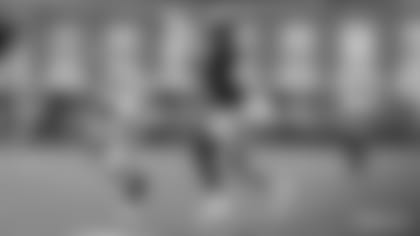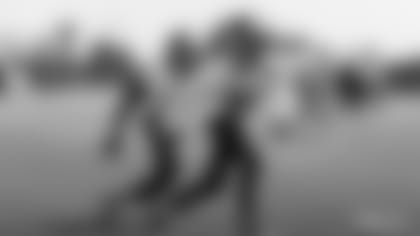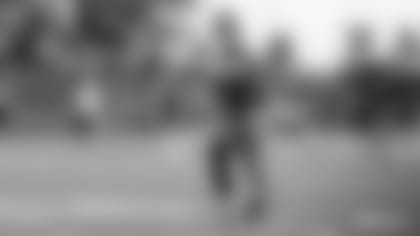EAST RUTHERFORD, N.J. – Michael Ghobrial was tasked with improving and invigorating the Giants' special teams when he was named their new coordinator on January 25. Two months later, his job – and that of even the league's most experienced coordinators – became more challenging when the NFL owners approved radical new rules for kickoffs, which had become relatively sedate.
Since the team's offseason conditioning program began on Monday, Ghobrial has been getting to know the players, introducing his schemes and philosophies…and fielded numerous inquiries about kickoffs.
"It's foreign territory to a lot of people, and just in passing, there's a lot of questions," Ghobrial said. "It's exciting when it comes down to it because it's so new, and your brain starts to go a million miles per hour because you're thinking of all the intricacies that go on in a specific play.
"But when it's so different, you have so many questions about it and how your brain, whatever way it works, you start to think of like, okay, could this be the advantage, could this be the advantage."
Players have also offered their suggestions.
"Everybody has great ideas on it," he said. "So, you know, it's exciting but players have come up and you know they have been simple questions and to the best of my knowledge, I'm going to give them those answers."
Because of a series of safety rules, the kickoff had become a largely ceremonial play the last few years. In 2023, the NFL had both a historically high rate of touchbacks (73%, far greater than the previous mark of 61.2% in 2020) and a record-low four kickoff return touchdowns all season.
The new rule will dramatically alter the look and execution of kickoffs. A "landing zone," the area between the receiving team's goal line and its 20-yard line, will result in a return if the ball lands in that region.
The kicking and receiving teams will have new alignments. The ball will still be kicked from the 35-yard line, but the remaining 10 players on the kicking unit will line up at the opposing team's 40-yard line. The receiving team lines up with at least seven players in the "set-up zone," a five-yard area between their own 35- and 30-yard lines, and a maximum of two returners can line up in the landing zone.
After the ball is kicked, the kicker cannot cross the 50-yard line and the 10 kicking team players cannot move until the ball hits the ground or a player in the landing zone catches it or it goes into the end zone. The receiving team's players in the set-up zone also cannot move until the kick has hit the ground or a player in the landing zone catches it or it goes into the end zone. The returner(s) may move at any time before or during the kickoff.
Kickoffs that hit the landing zone must be returned. Those that hit the landing zone and then go into the end zone must be returned or downed by the receiving team. If downed, the receiving team would get the ball at its own 20-yard line. Kickoffs that go into the end zone and stay inbounds that are downed would give the receiving team the ball at their own 30-yard line. Kickoffs that go out of the back of the end zone (in the air or bounces) would also be a touchback at the receiving team's 30-yard line. Finally, kickoffs short of the landing zone would be treated like a kickoff out of bounds, and the receiving team would get the ball at its own 40-yard line.
"This game is ever evolving, and as a coordinator, there's an instance where you have to try and stay ahead of all the rule changes and find out what are all the intricacies of what those provide," Ghobrial said. "This obviously is going to be some foreign territory, but for everybody across the league."
The hope and belief are that the new rules will result in fewer high-speed collisions and fewer injuries, which traditionally occur at a higher rate on kickoffs than other plays.
"I think the NFL has done a hell of a job in terms of taking out the speed and space of this play in terms of kickoff to keep guys healthier, which is a big deal," Ghobrial said. "But ultimately bringing back a play that was almost dissolving with all the touchbacks and the fair catches that you were seeing.
"So, it's exciting to see. It's exciting to game plan. It's exciting to kind of find the little nuances when it comes to that specific rule change. But when it comes down to it, I've always felt that every special teams play requires a certain level of effort, a certain level of technique and a certain level of violence. Those will be the foundational pieces of that rule change. And then obviously figuring out what is our best foot forward in terms of attacking that. We'll do that this spring."
He could be working under a new set of rules next year. The new kickoff rule is a one-year experiment. To continue it in 2025 in any form, at least 24 owners must vote for it again.
Players have returned to the Quest Diagnostics Training Center for the offseason workout program.
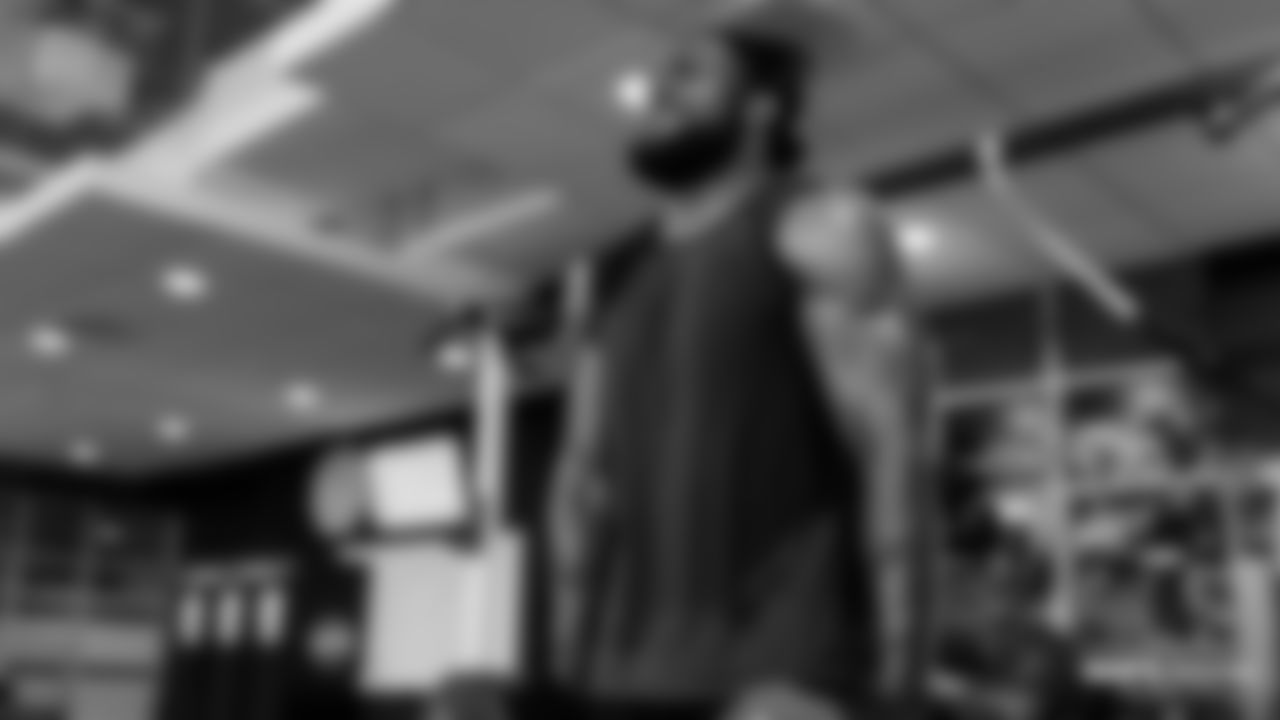
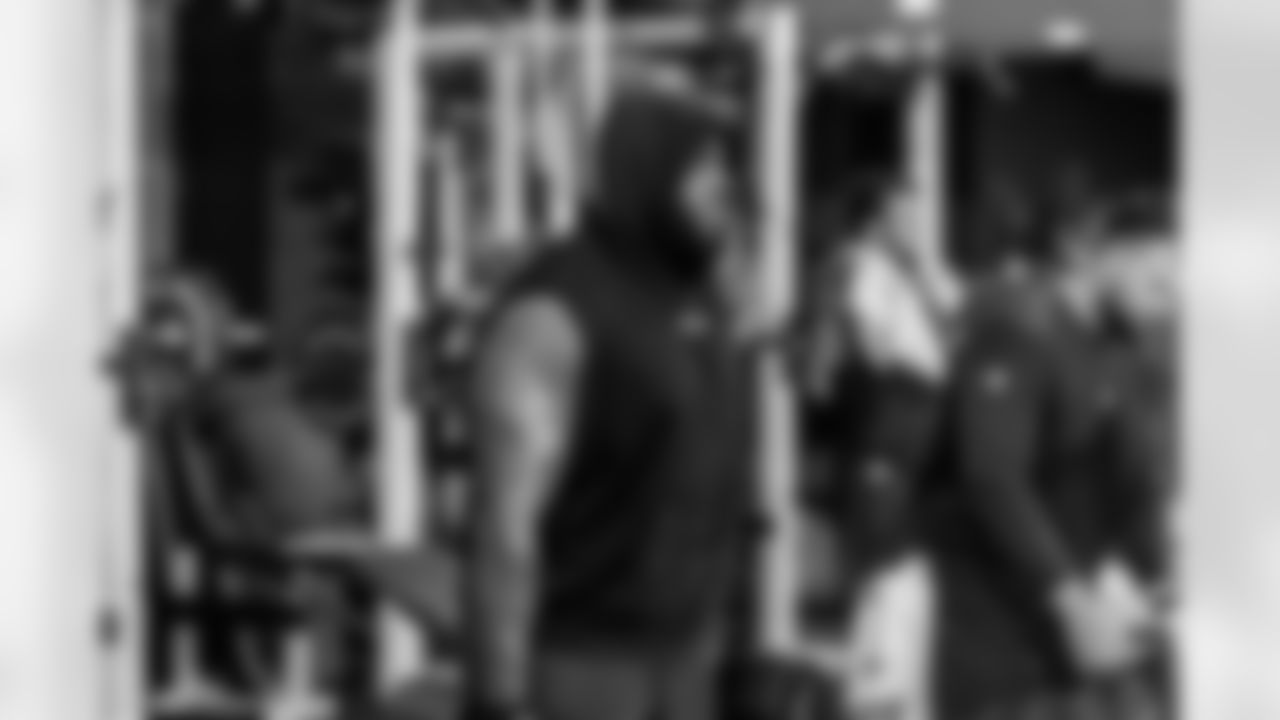
Andrew Thomas
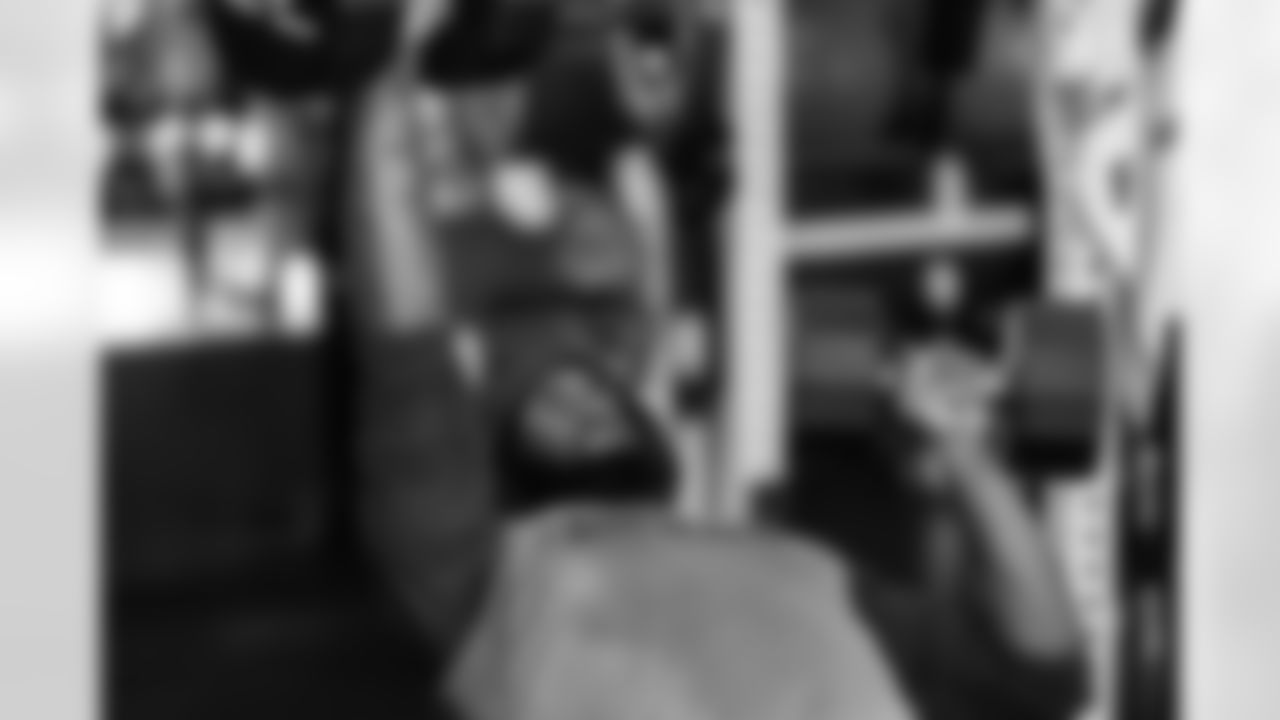
Brian Burns

Deonte Banks

Wan'Dale Robinson

Daniel Bellinger

Kayvon Thibodeaux

Dexter Lawrence II (97)

Micah McFadden

Bobby Okereke

Devin Singletary

Dane Belton

John Michael Schmitz Jr.

Brian Burns

Daniel Jones

Andrew Thomas

Jason Pinnock

Jalen Mills

Kayvon Thibodeaux

Jalin Hyatt
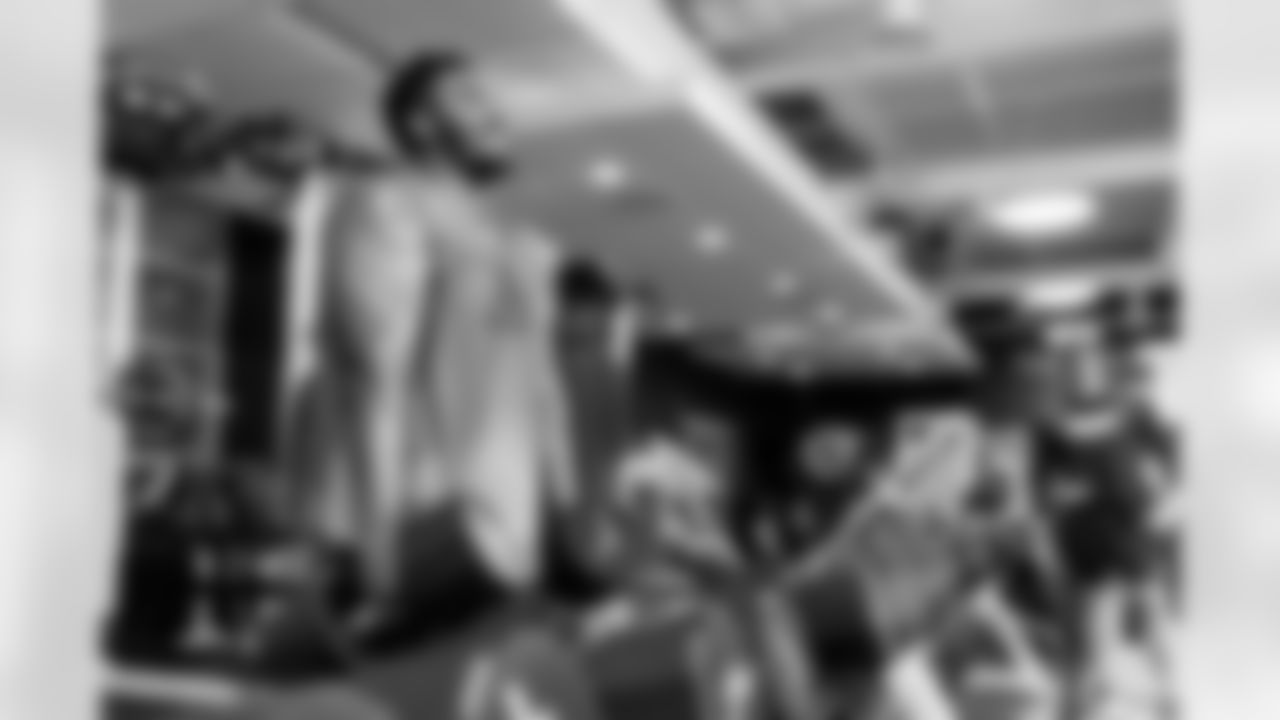
Jordon Riley

Nick McCloud

Isaiah Hodgins

Isaiah Simmons


Jack Stoll, Daniel Jones, Daniel Bellinger

Daniel Bellinger, Tyree Jackson, Tommy DeVito
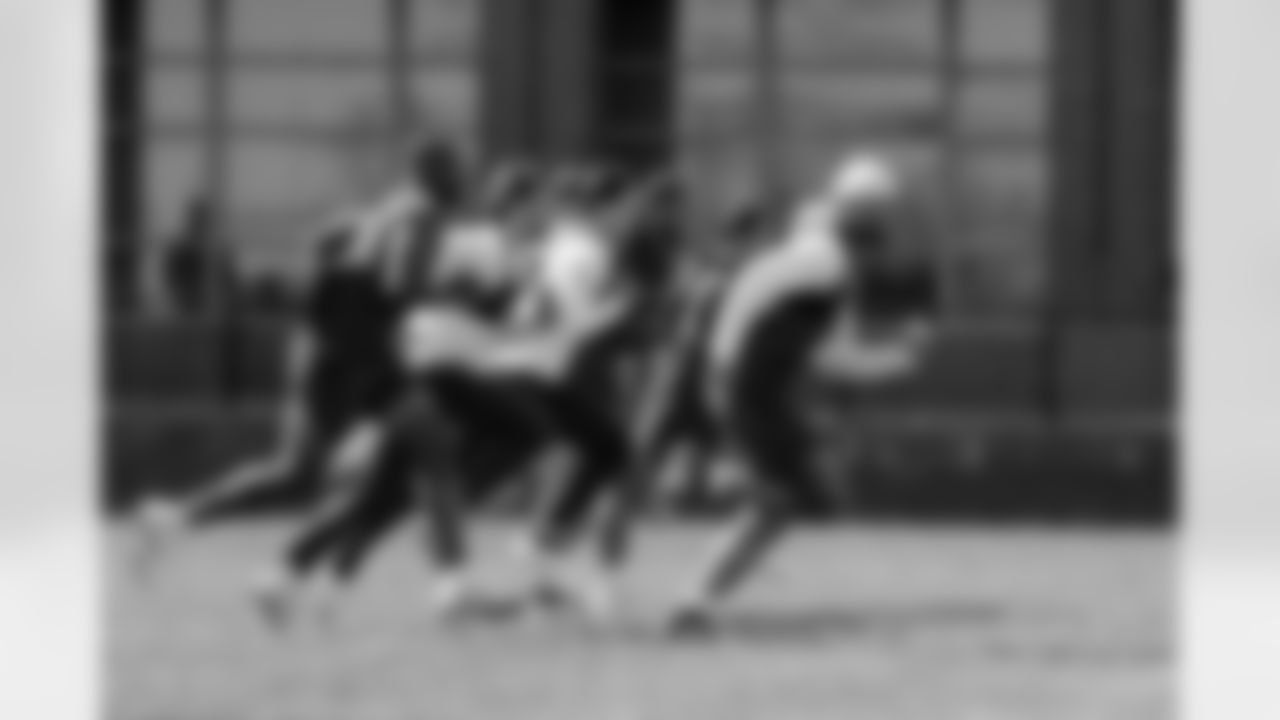
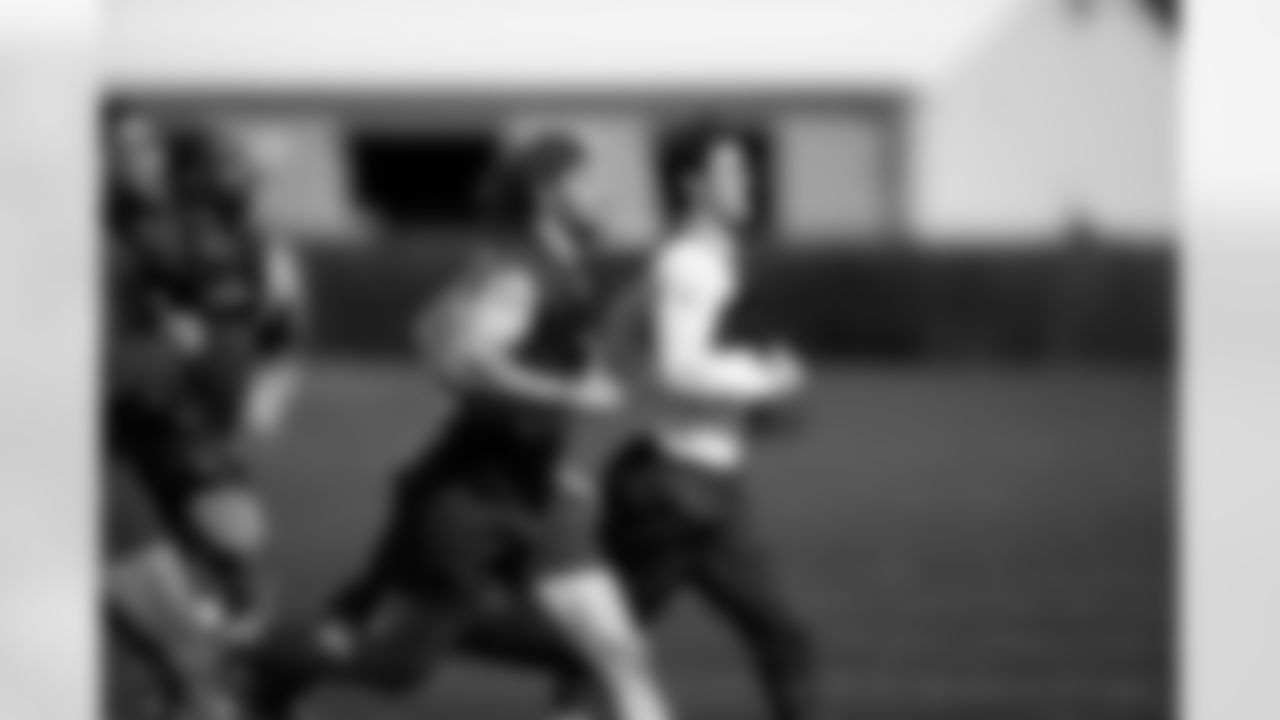
Daniel Bellinger
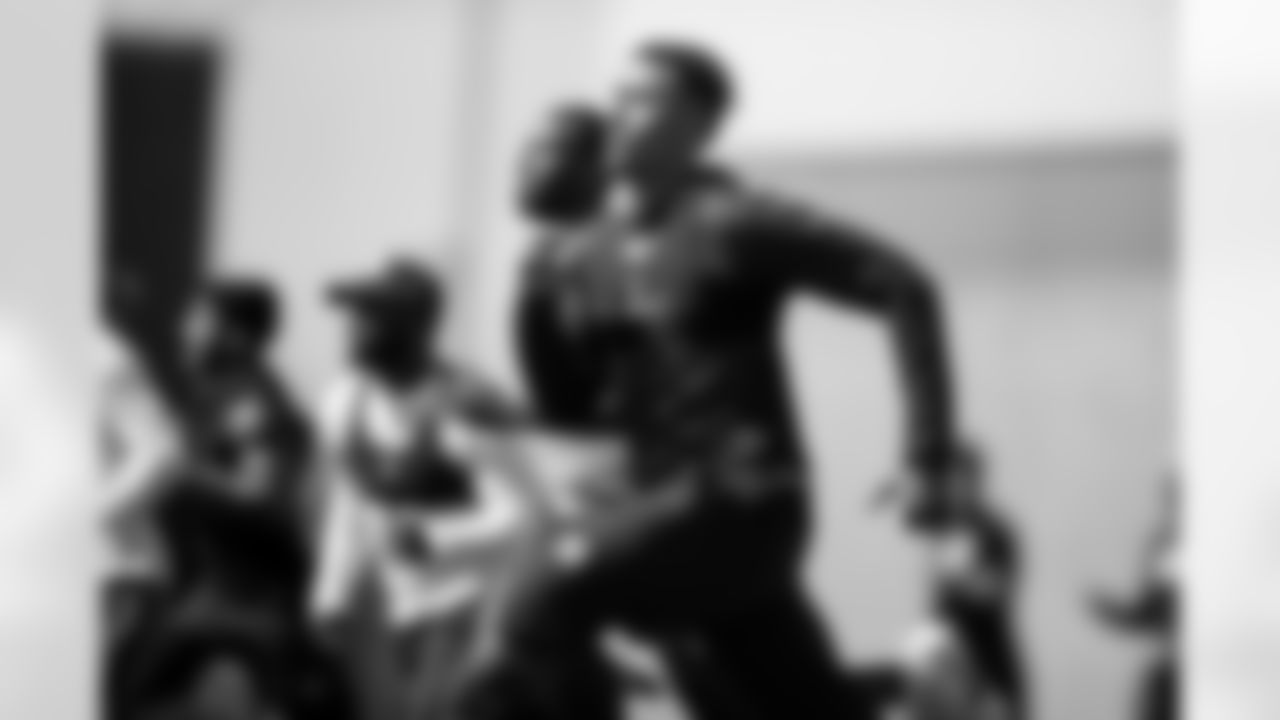
Isaiah Hodgins
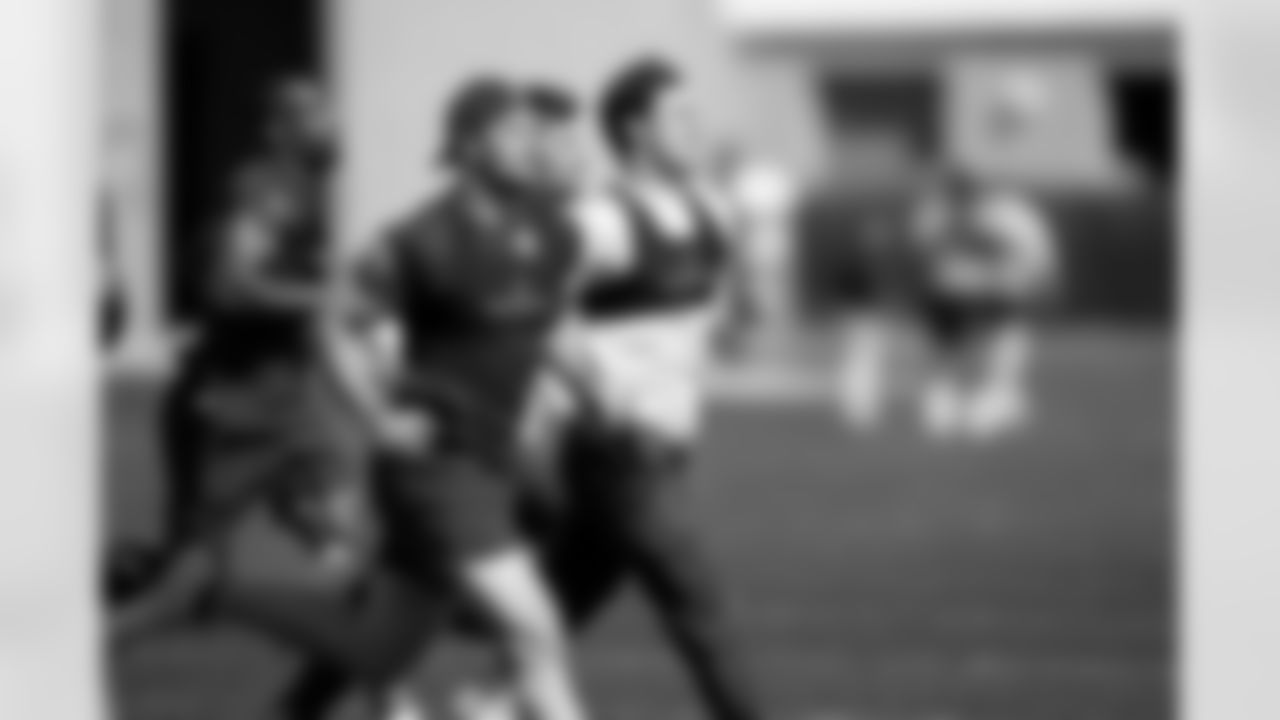
Daniel Bellinger
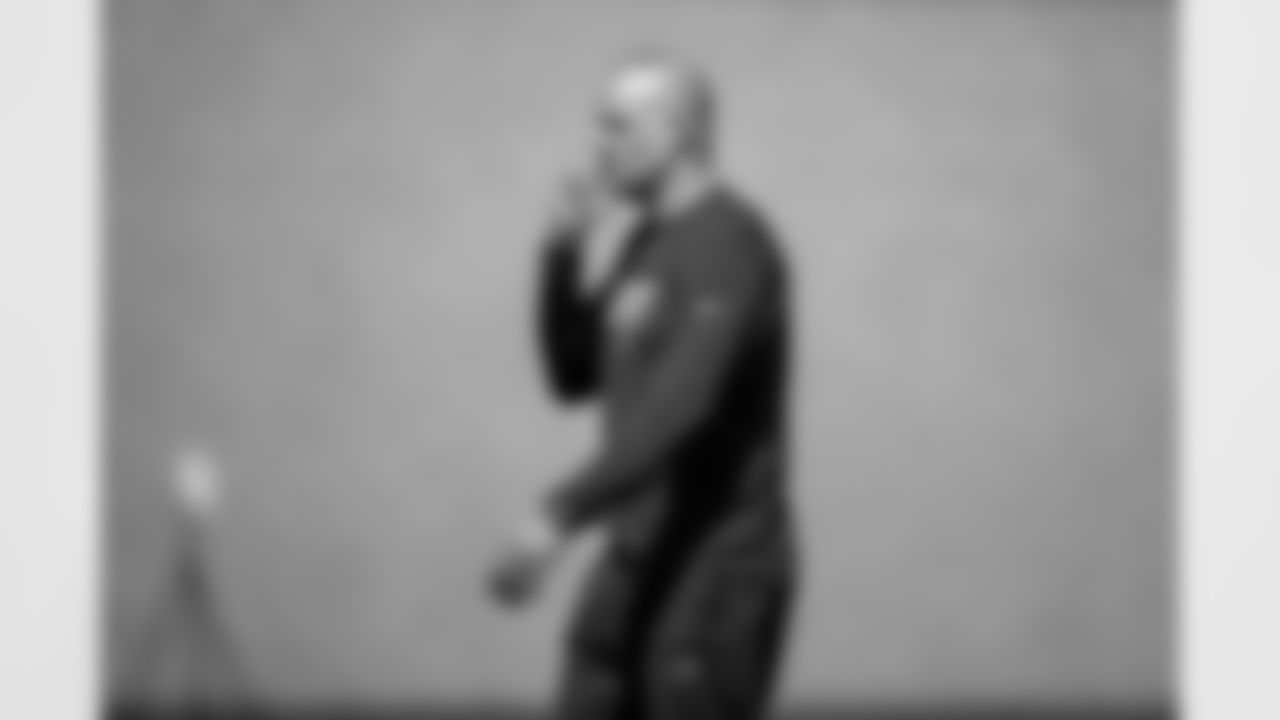
Frank Piraino
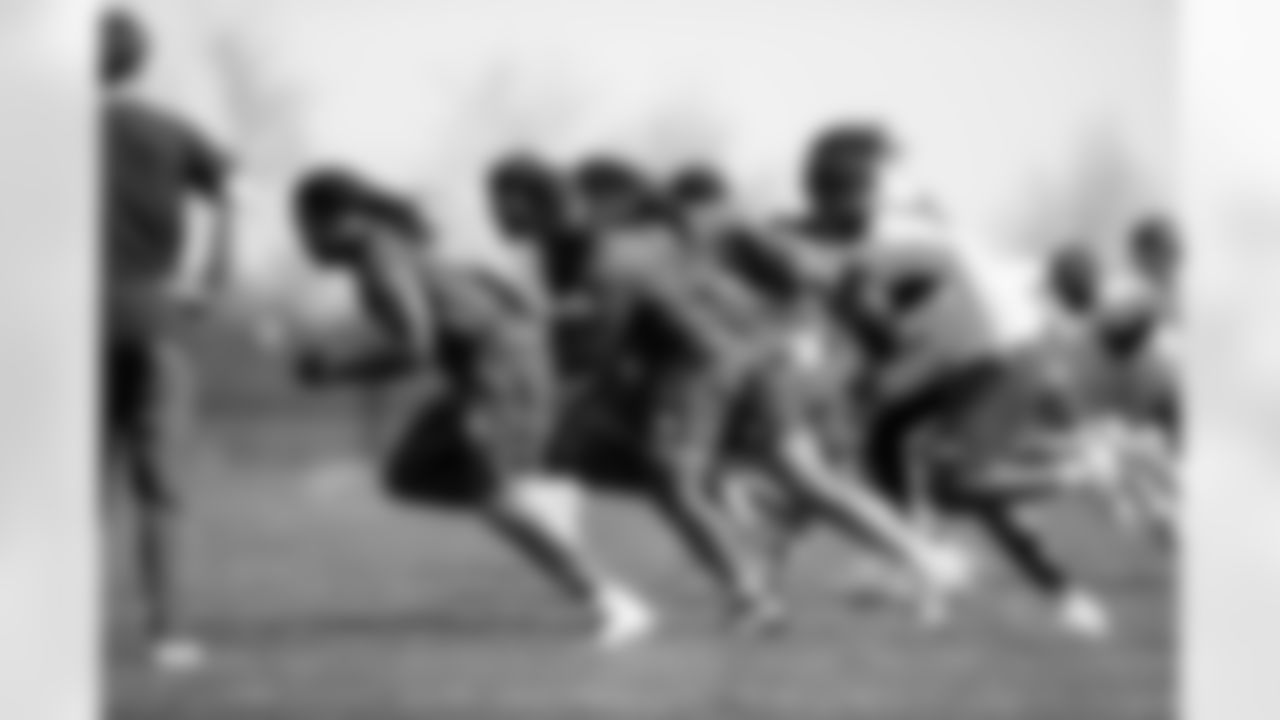
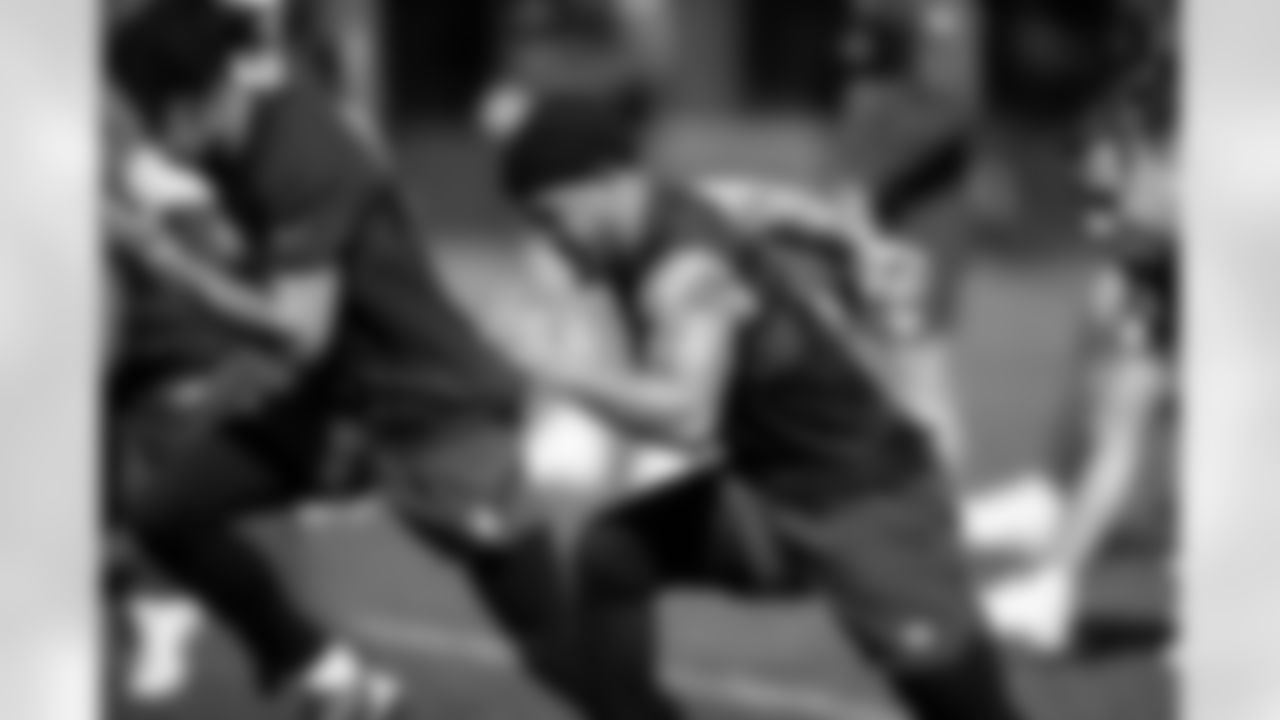
Wan'Dale Robinson
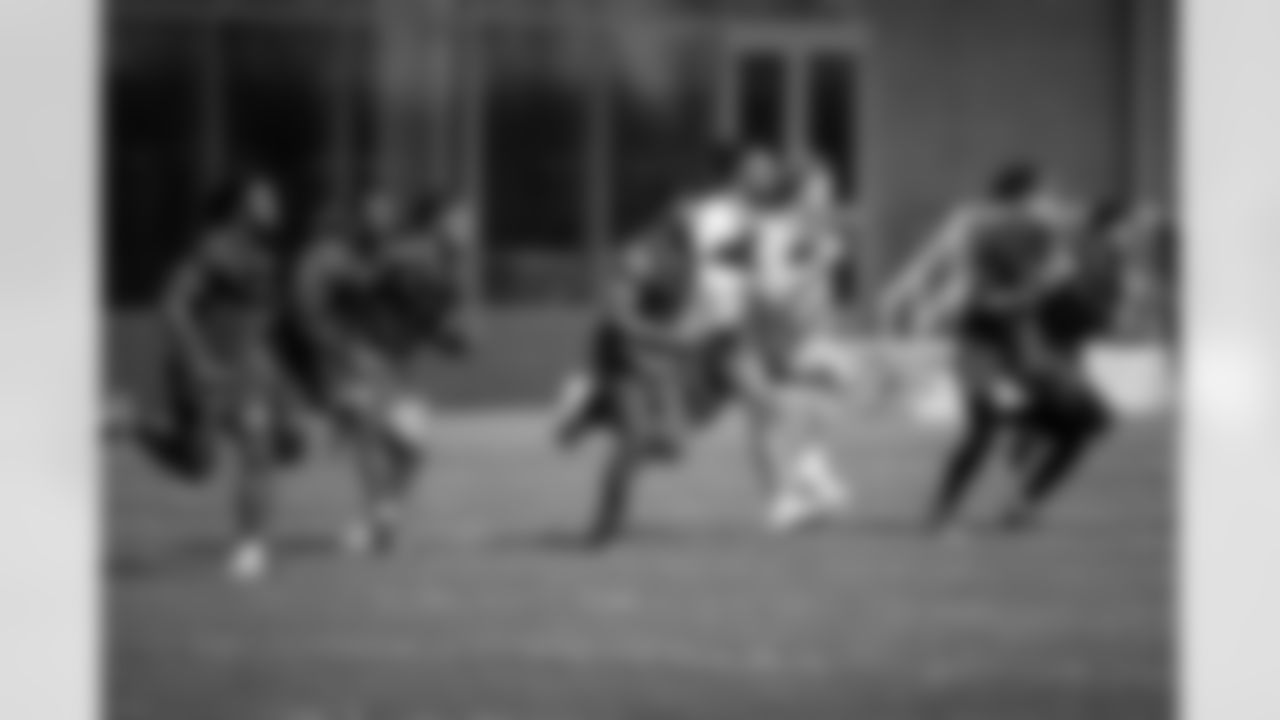
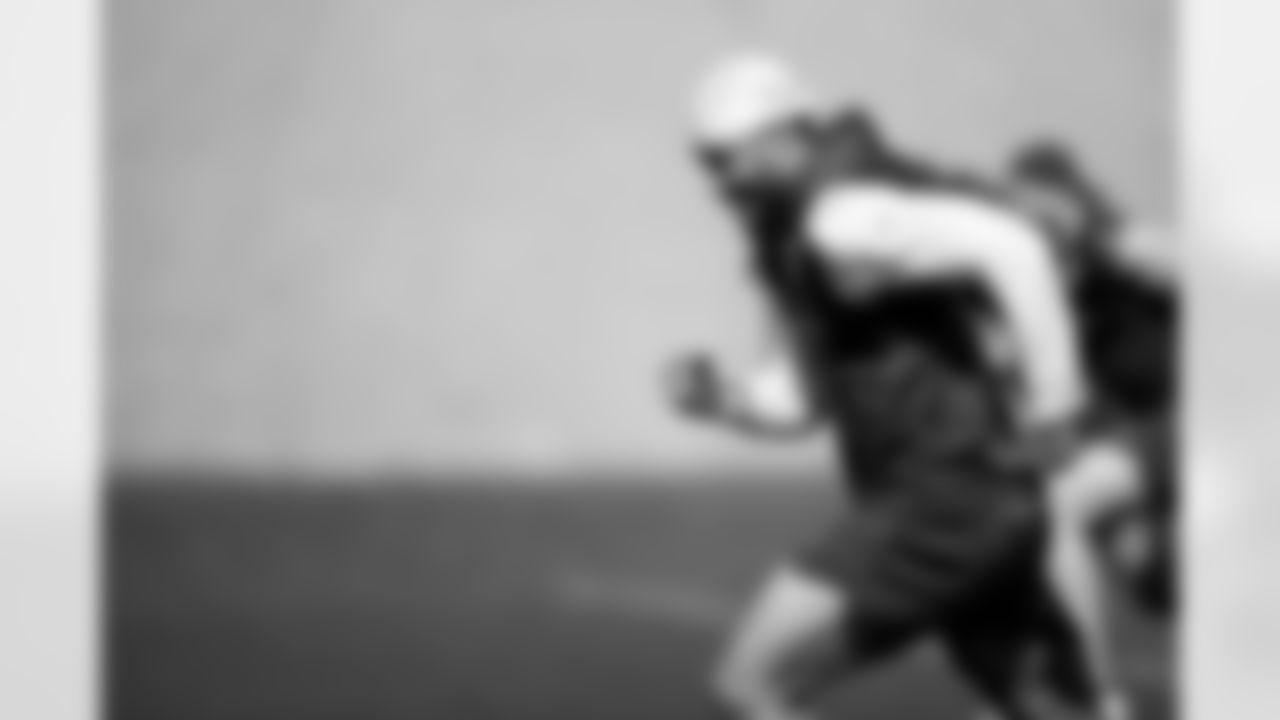
Lawrence Cager


Drew Wilson Assistant Strength and Conditioning Coach
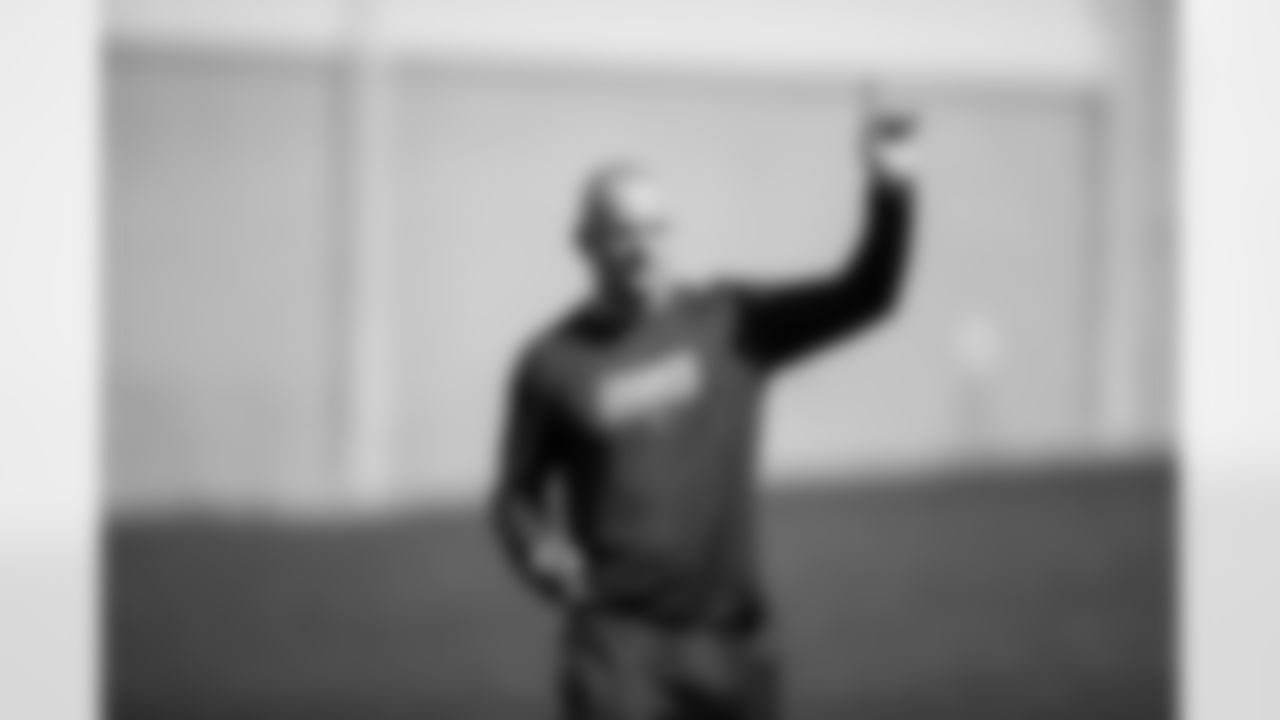
Frank Piraino
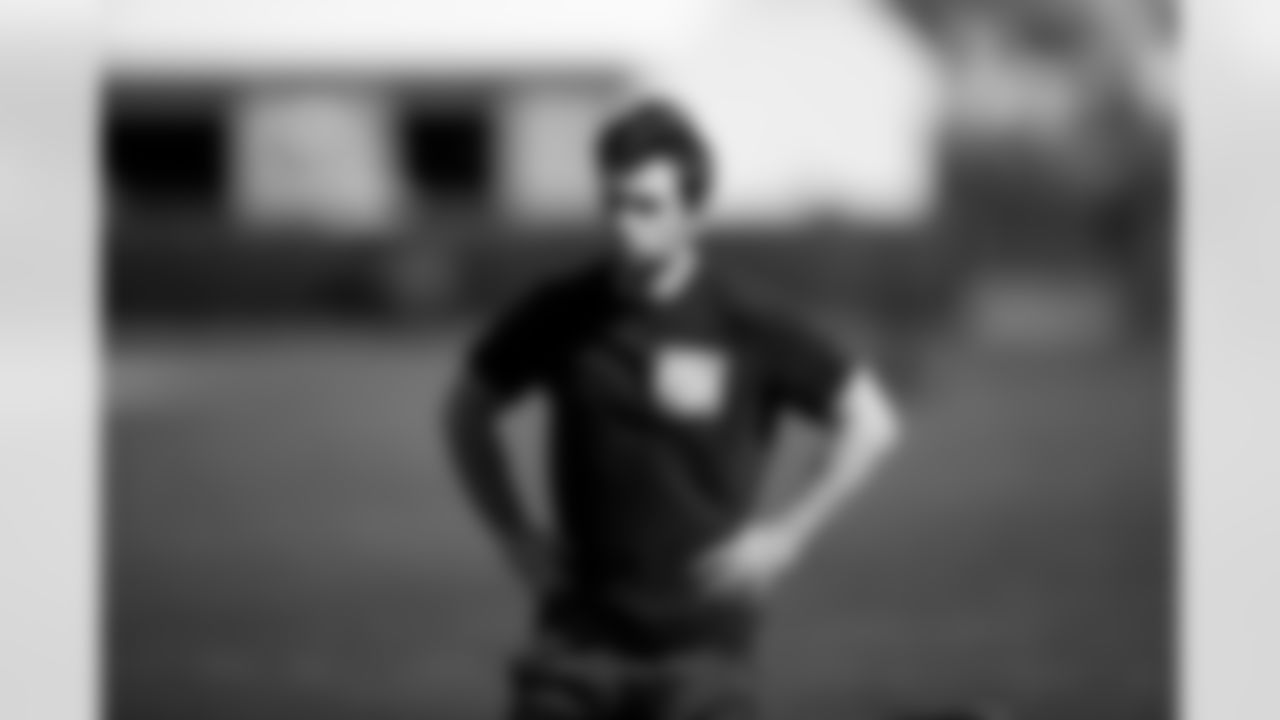
Sam Coad Director of Performance/Assistant Strength and Conditioning Coach
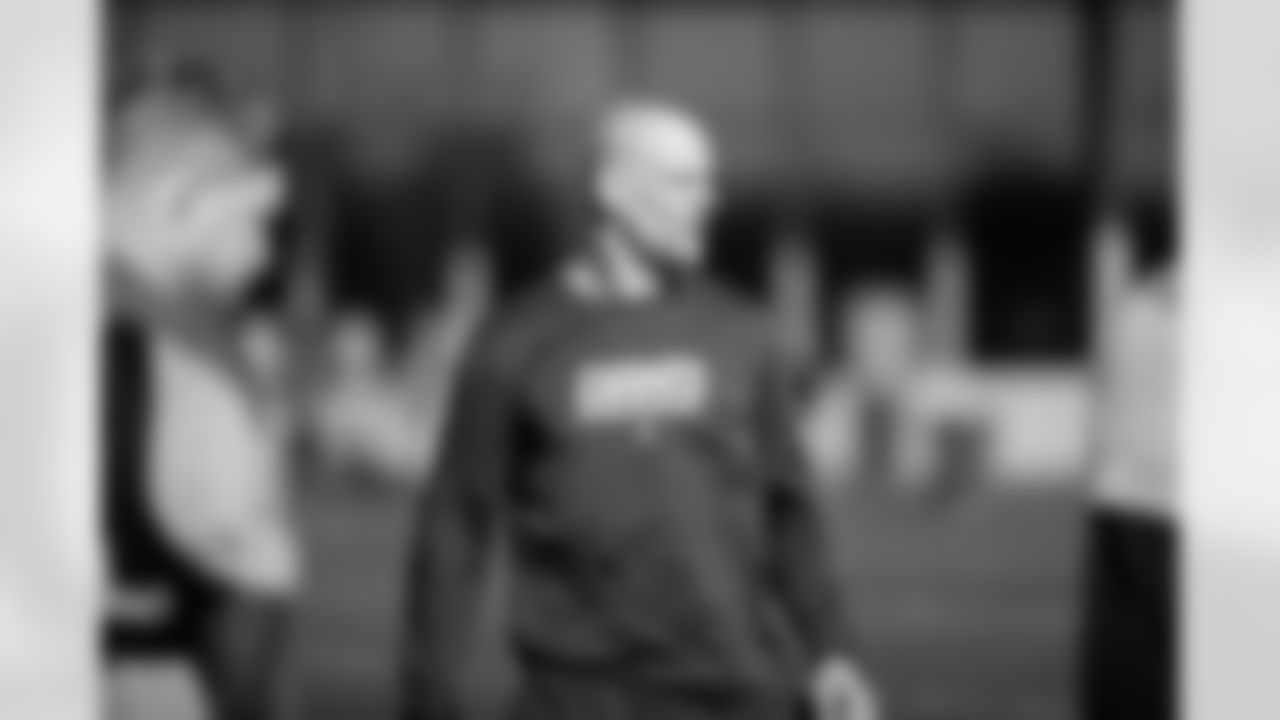
Frank Piraino
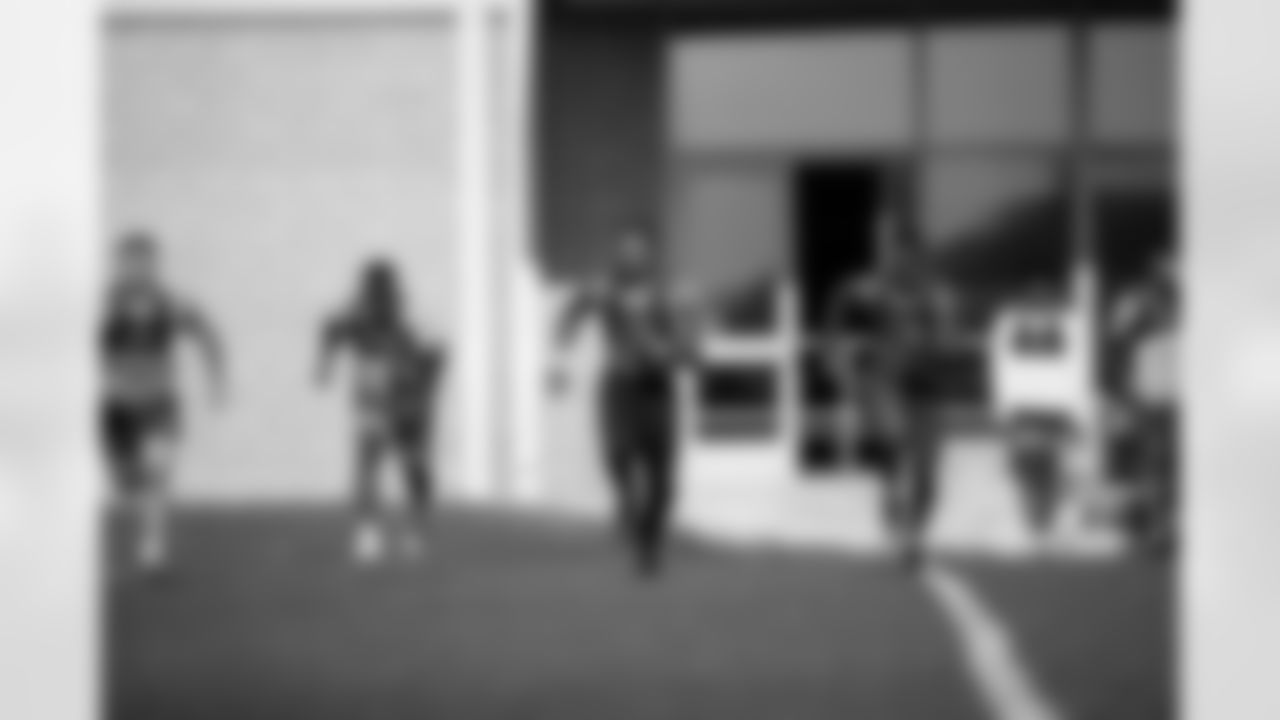
Bobby Okereke, Tre Hawkins III
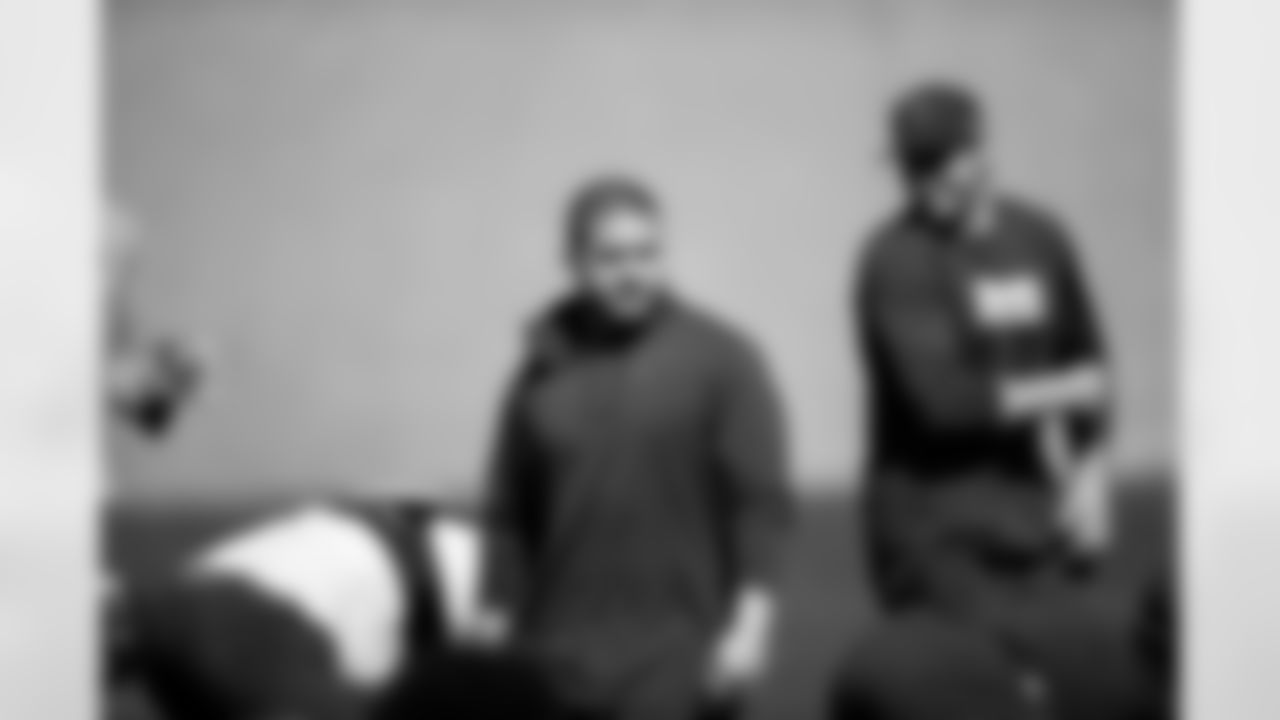
Steven Tatekawa Assistant Strength and Conditioning Coach

Deonte Banks, Isaiah Simmons
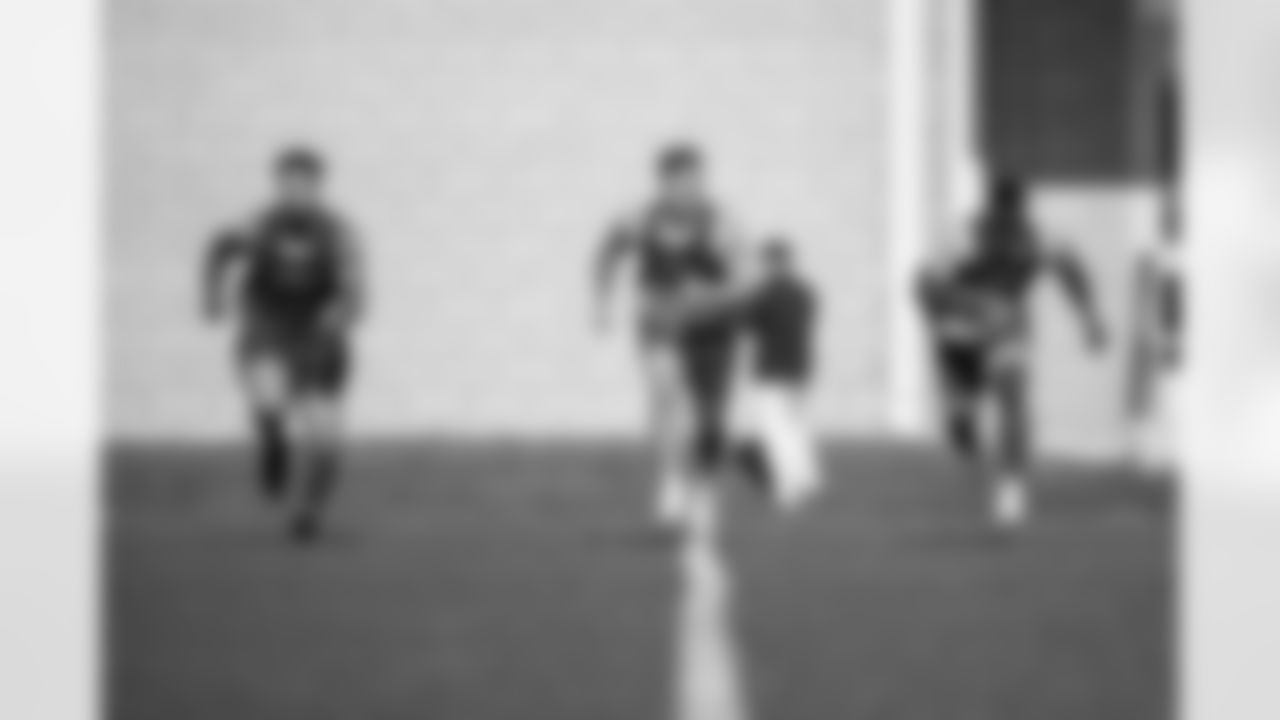
Darrian Beavers, Micah McFadden, Matthew Adams

Jason Pinnock
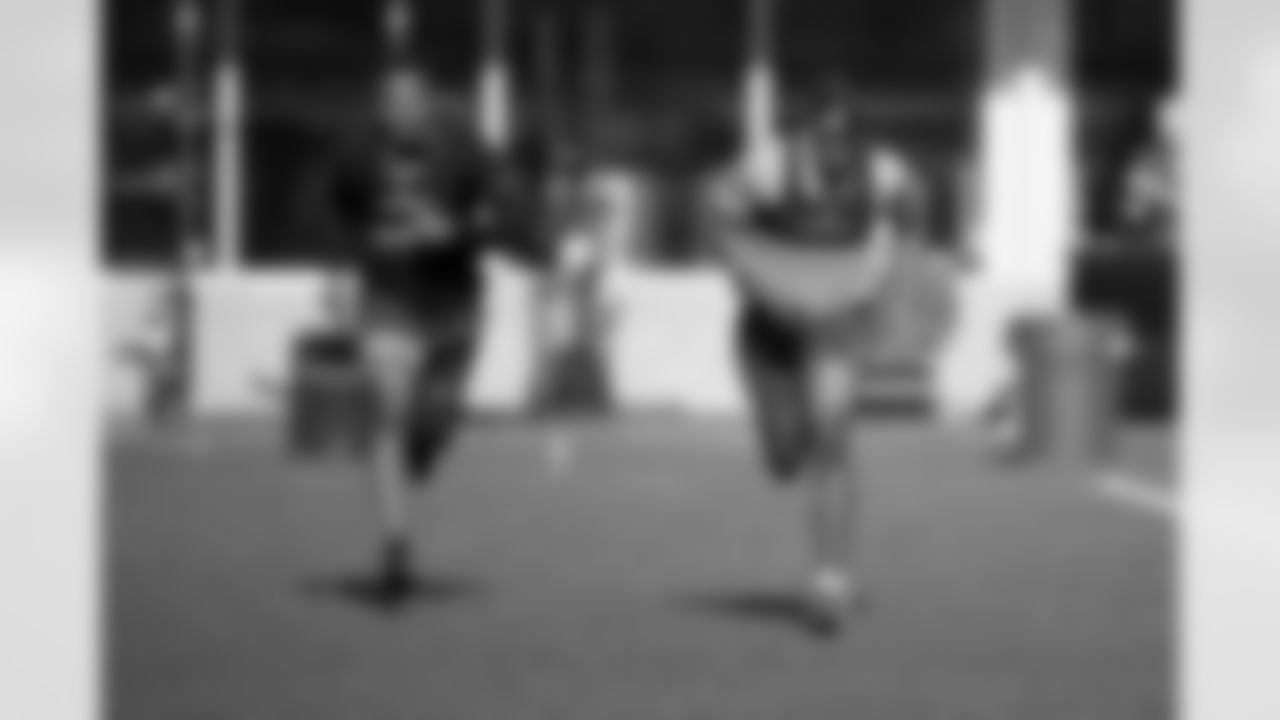
Kaleb Hayes, Gervarrius Owens

Bobby Okereke
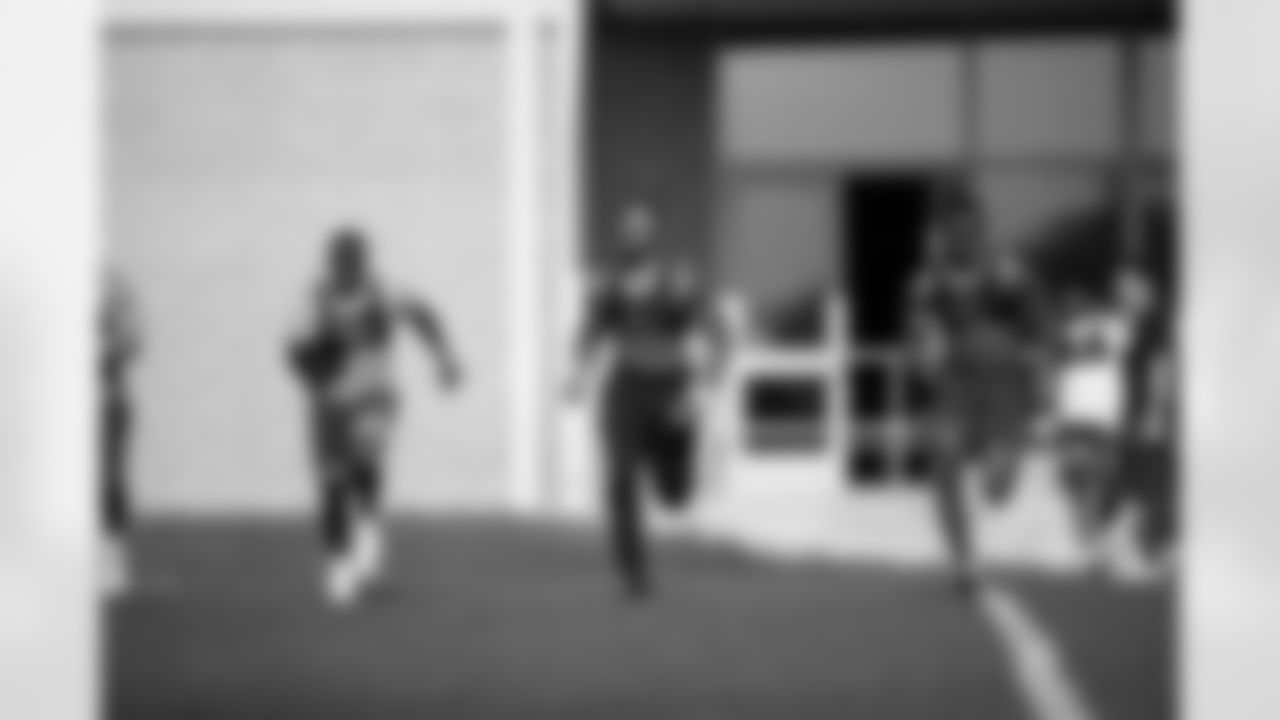
Bobby Okereke, Tre Hawkins III
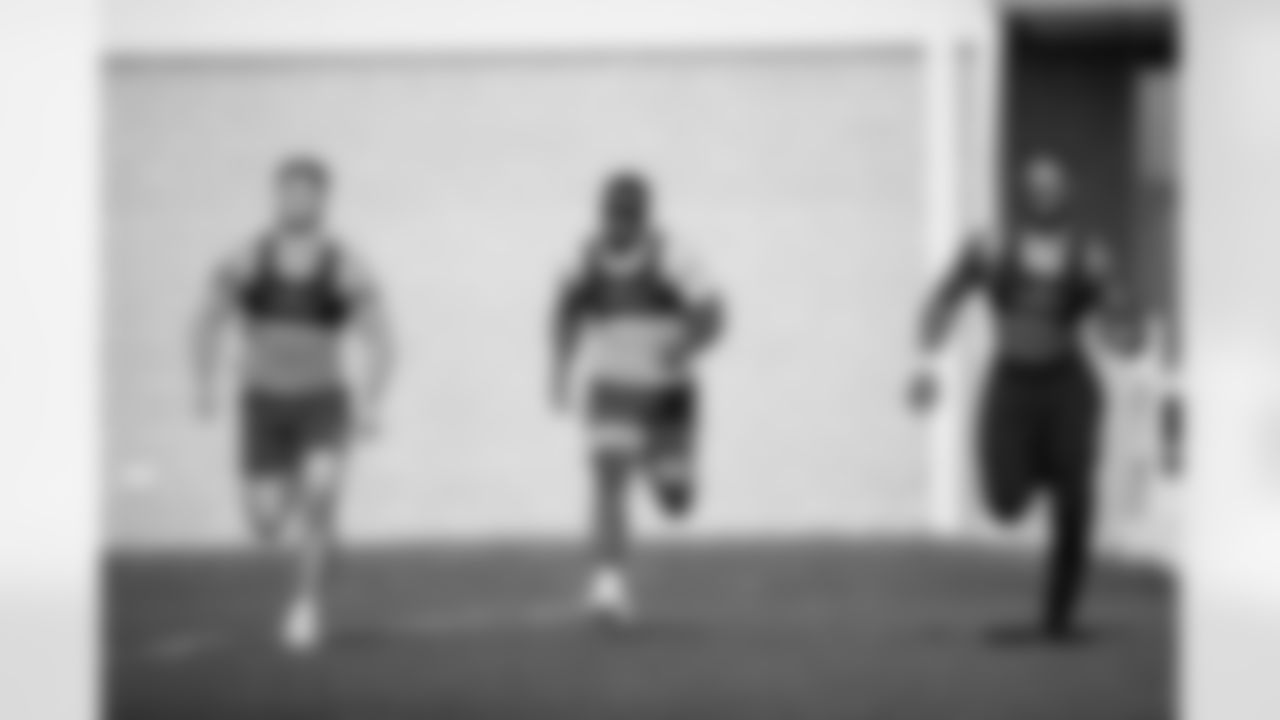
Micah McFadden, Matthew Adams, Bobby Okereke
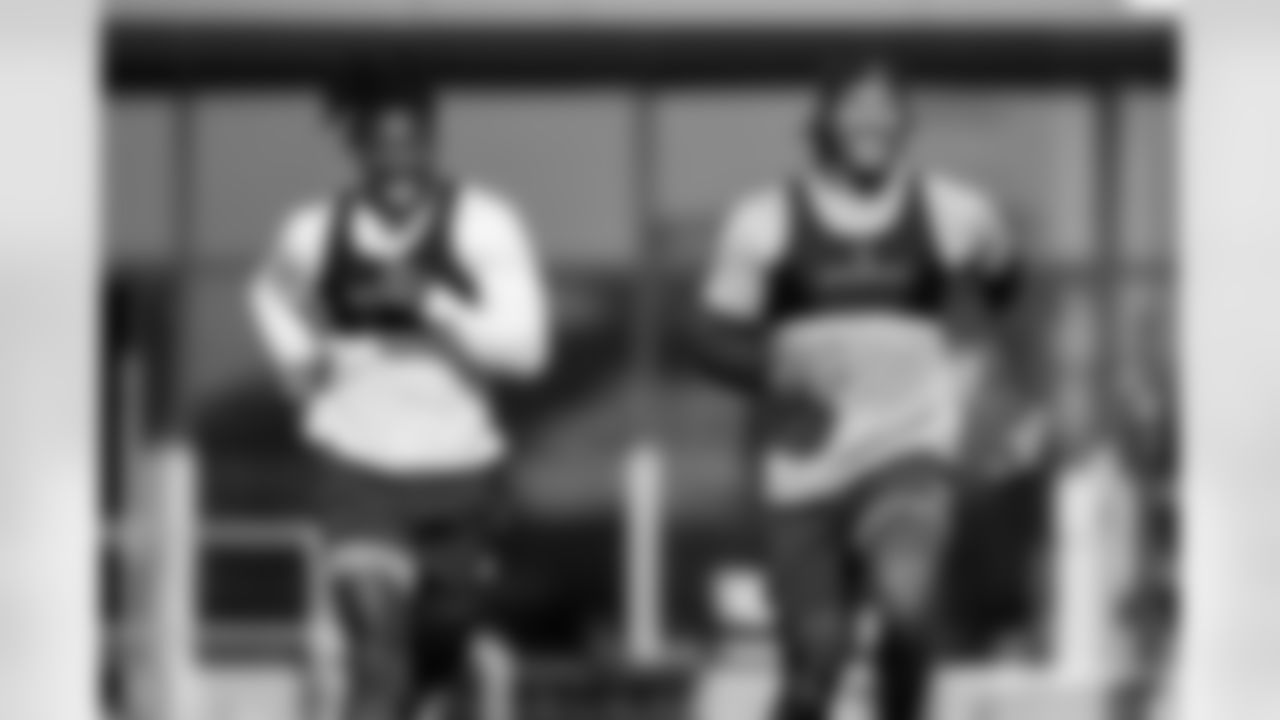
Deonte Banks, Isaiah Simmons
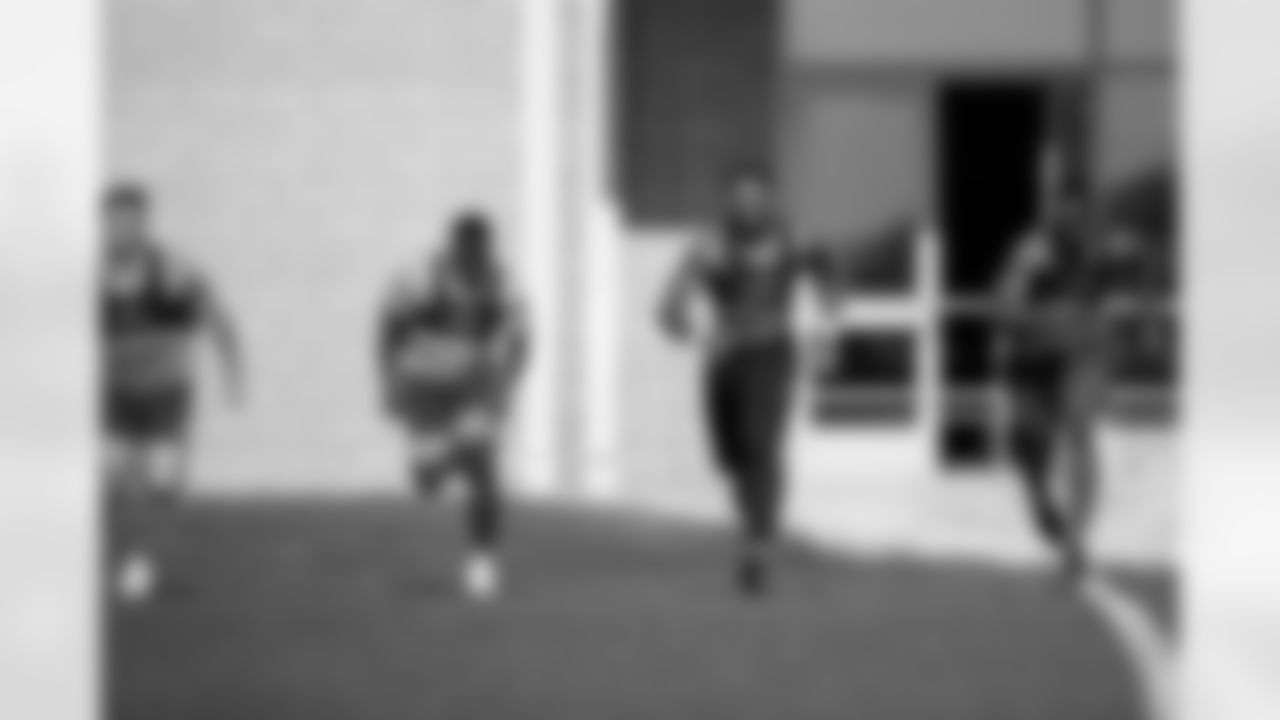
Micah McFadden, Bobby Okereke, Tre Hawkins III

Azeez Ojulari, Kayvon Thibodeaux, Brian Burns
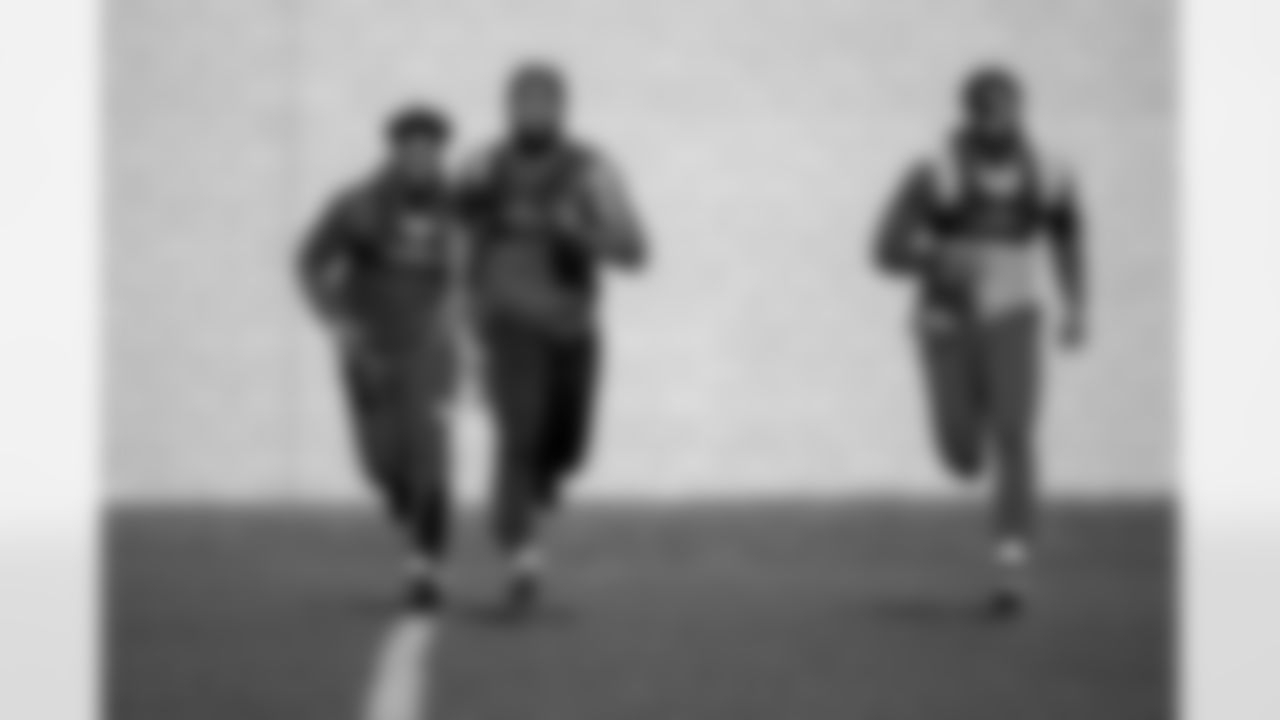
Azeez Ojulari, Kayvon Thibodeaux, Brian Burns
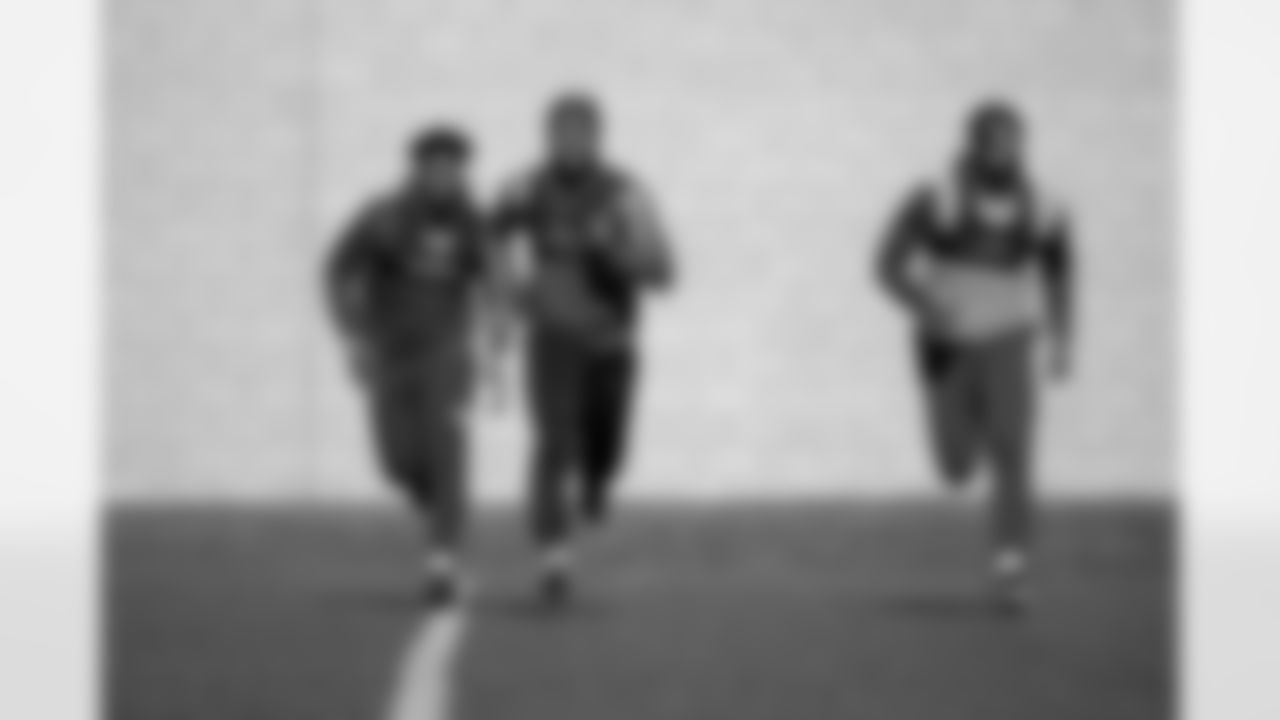
Azeez Ojulari, Kayvon Thibodeaux, Brian Burns
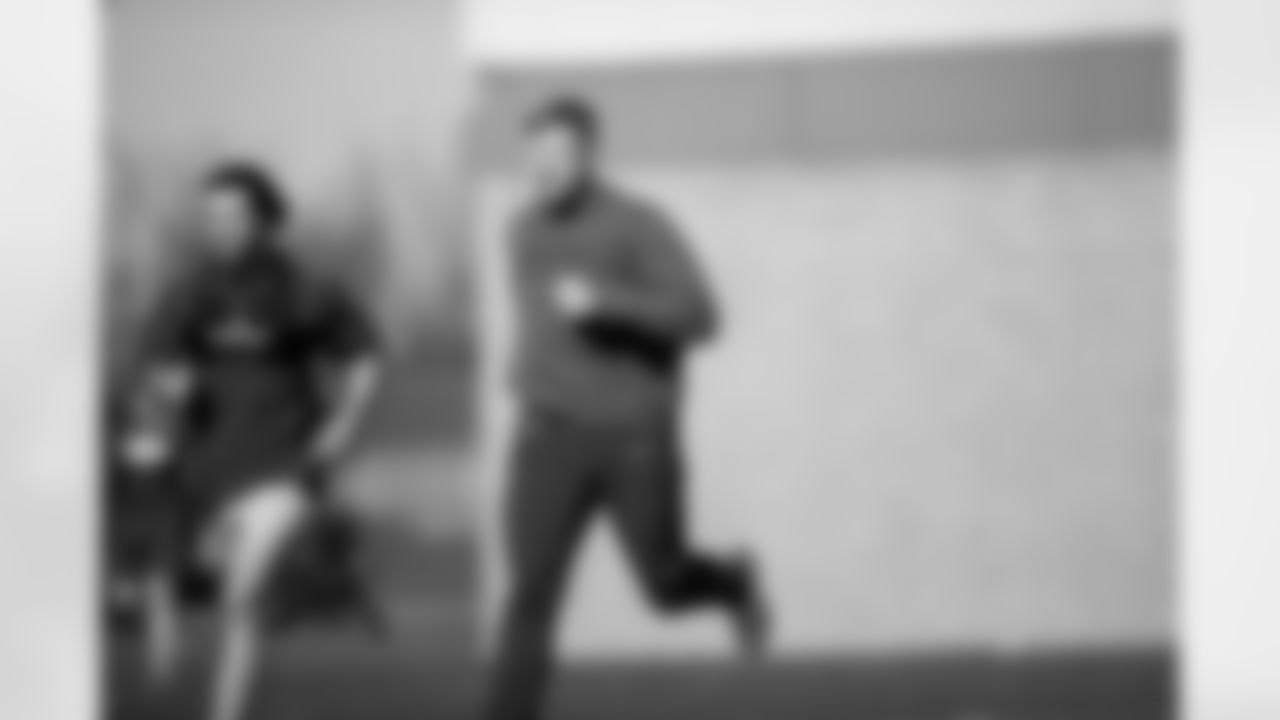
Casey Kreiter
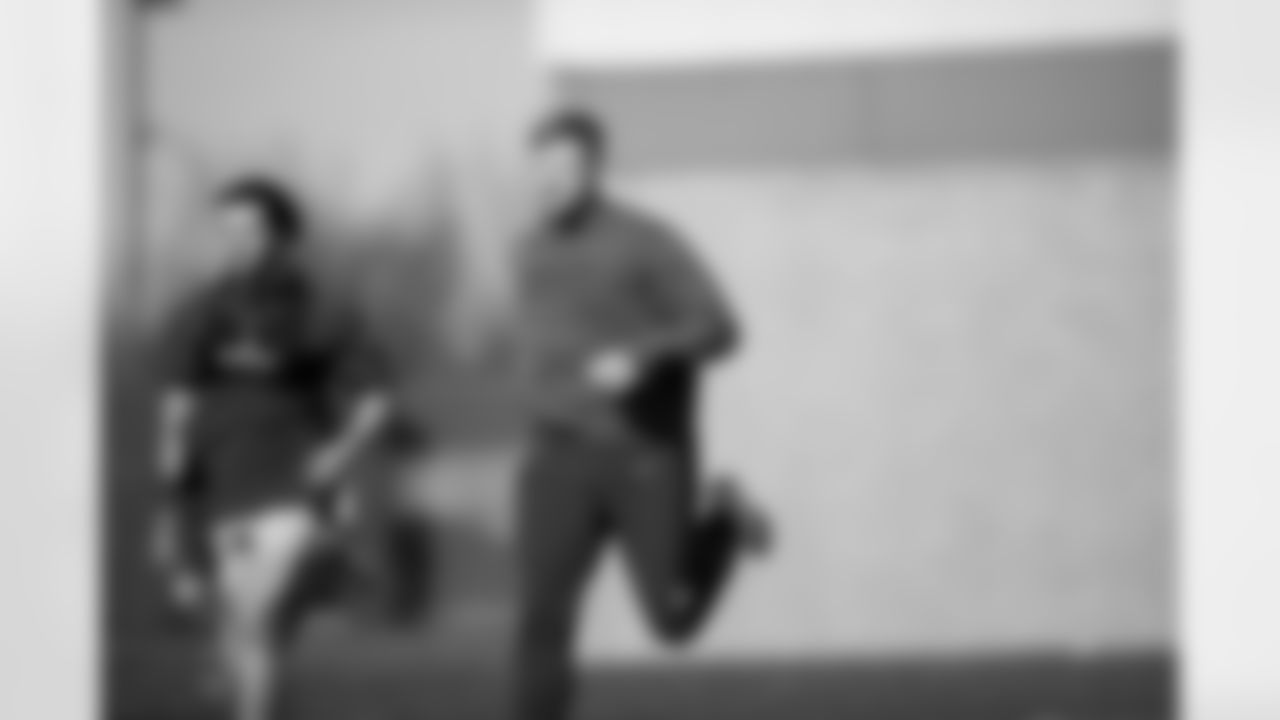
Casey Kreiter

Azeez Ojulari, Kayvon Thibodeaux, Brian Burns
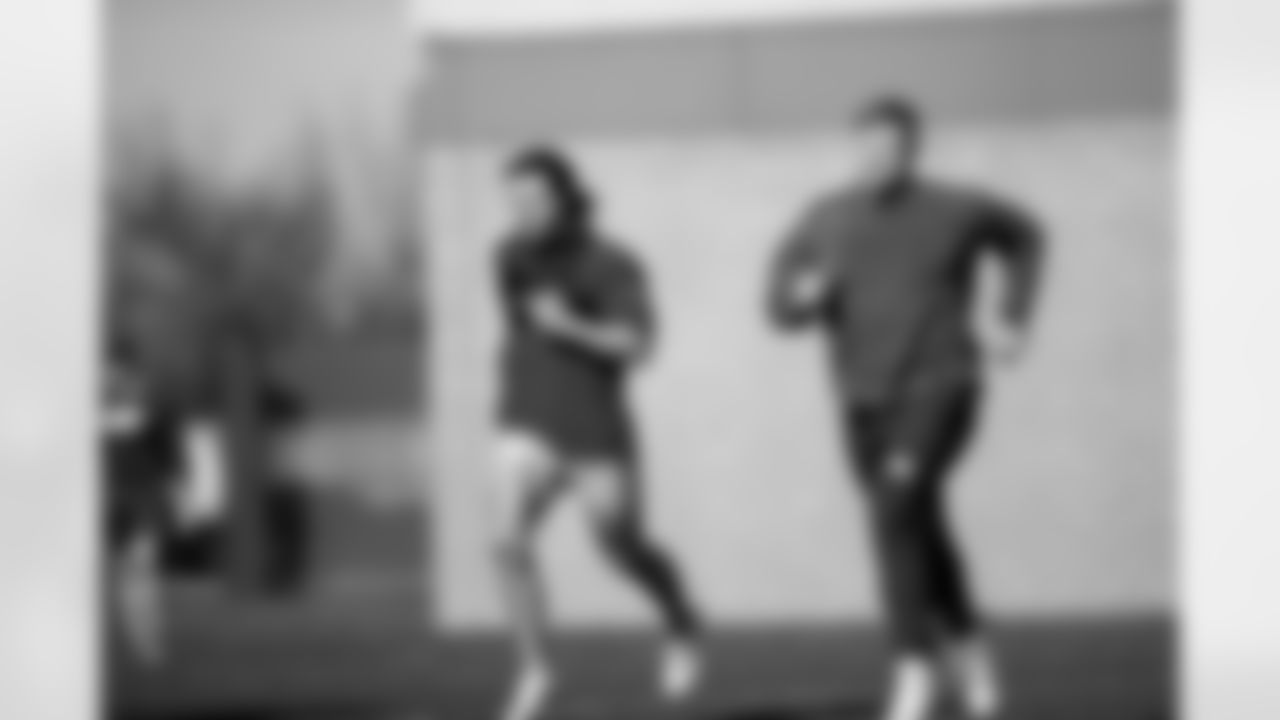
Jamie Gillan
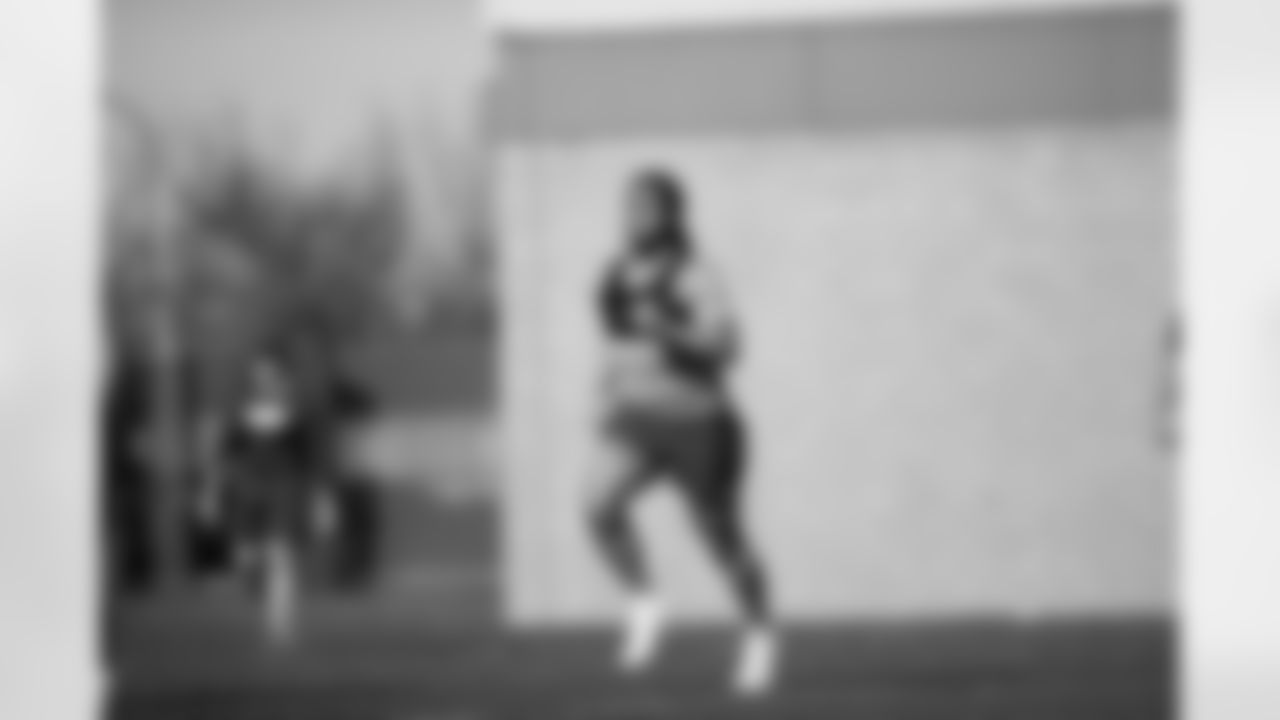
Ryder Anderson (90)

Jamie Gillan
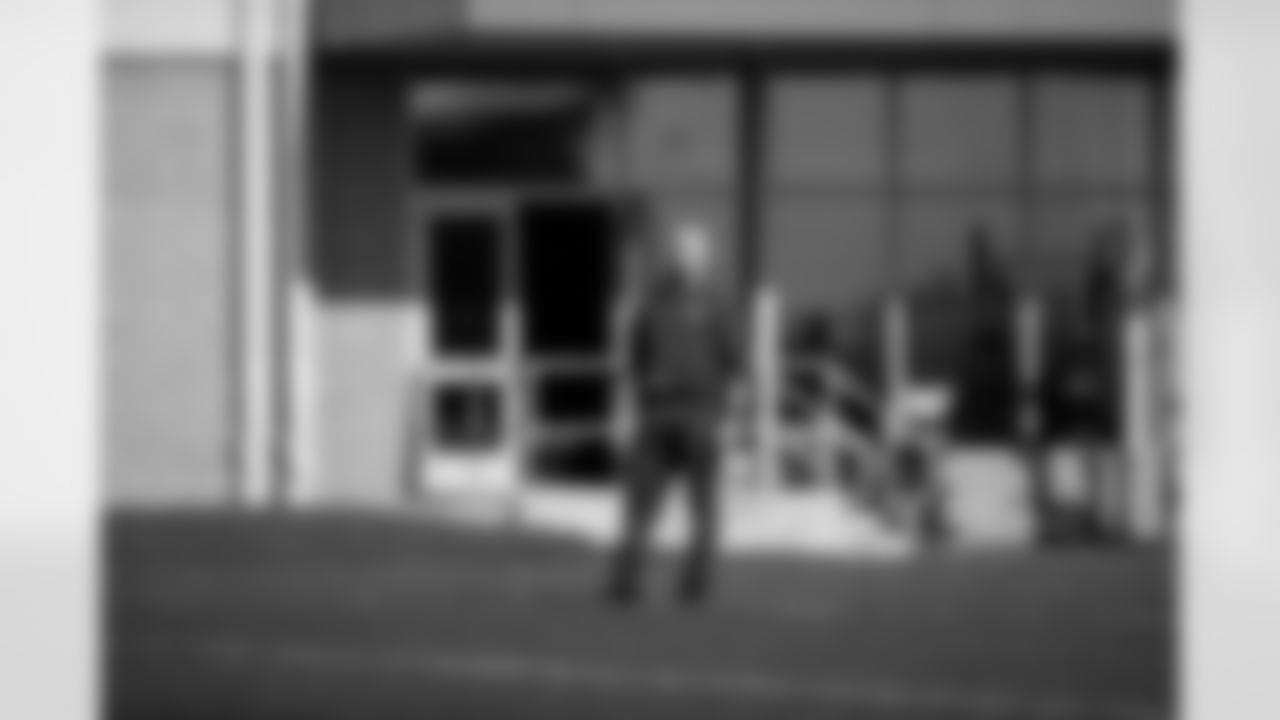
Aaron Wellman

Frank Piraino
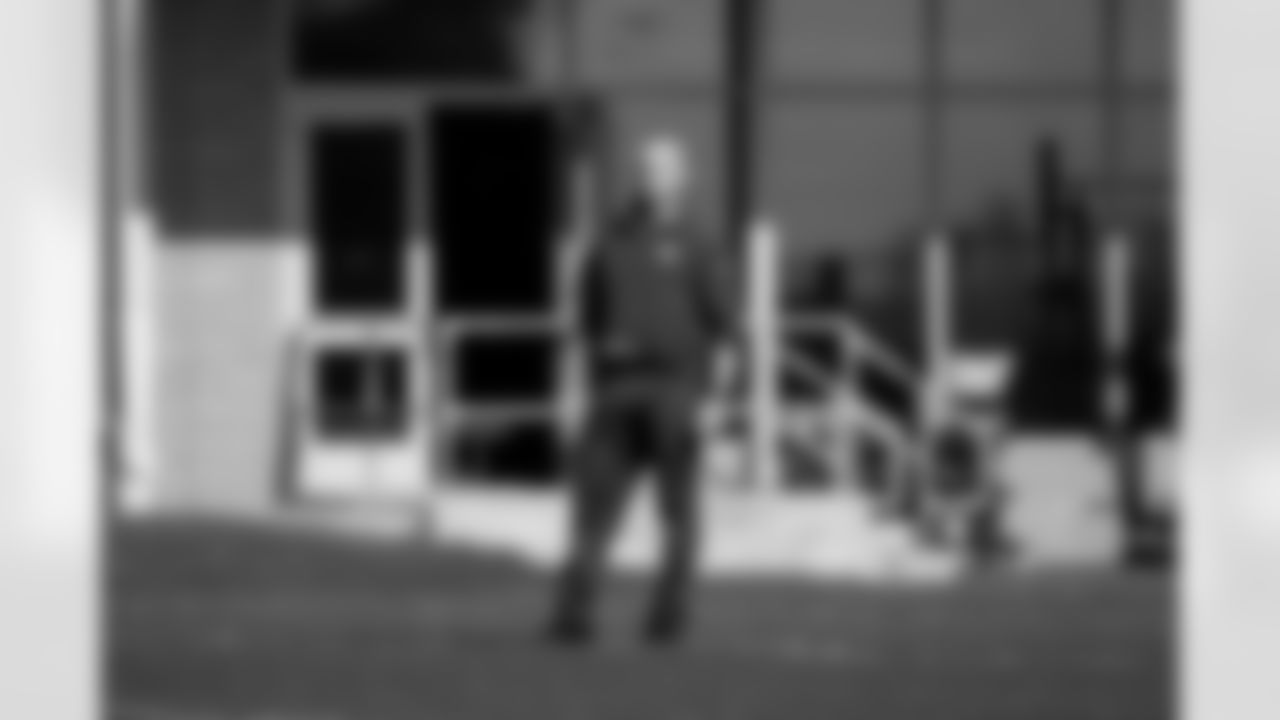
Aaron Wellman
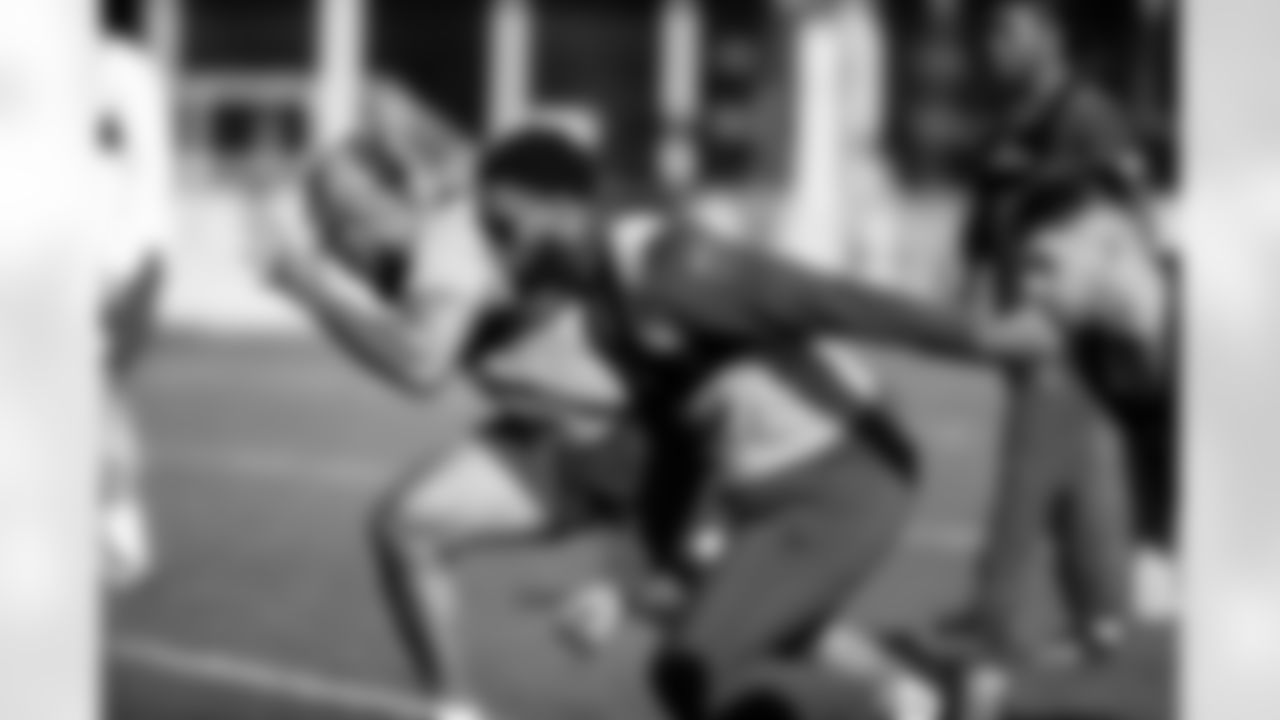
Brian Burns (0)

Dexter Lawrence II (97)
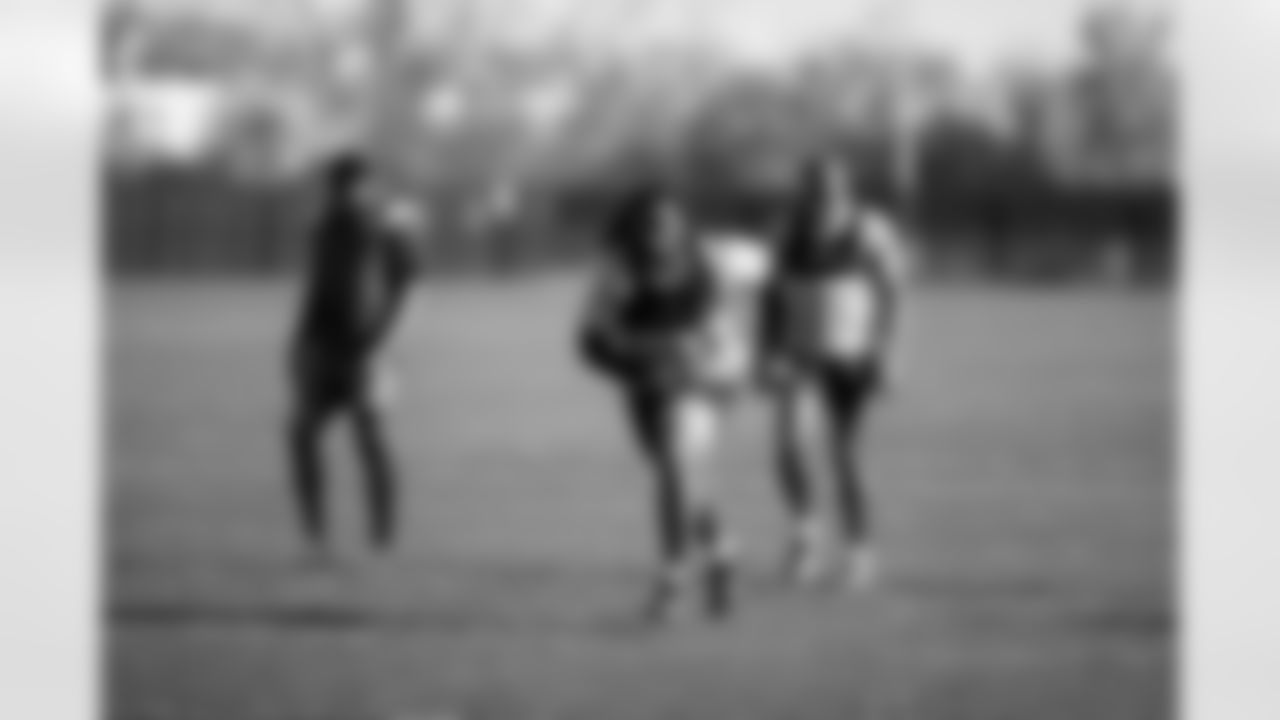
Boogie Basham (45)

Cor'Dale Flott

Nick McCloud
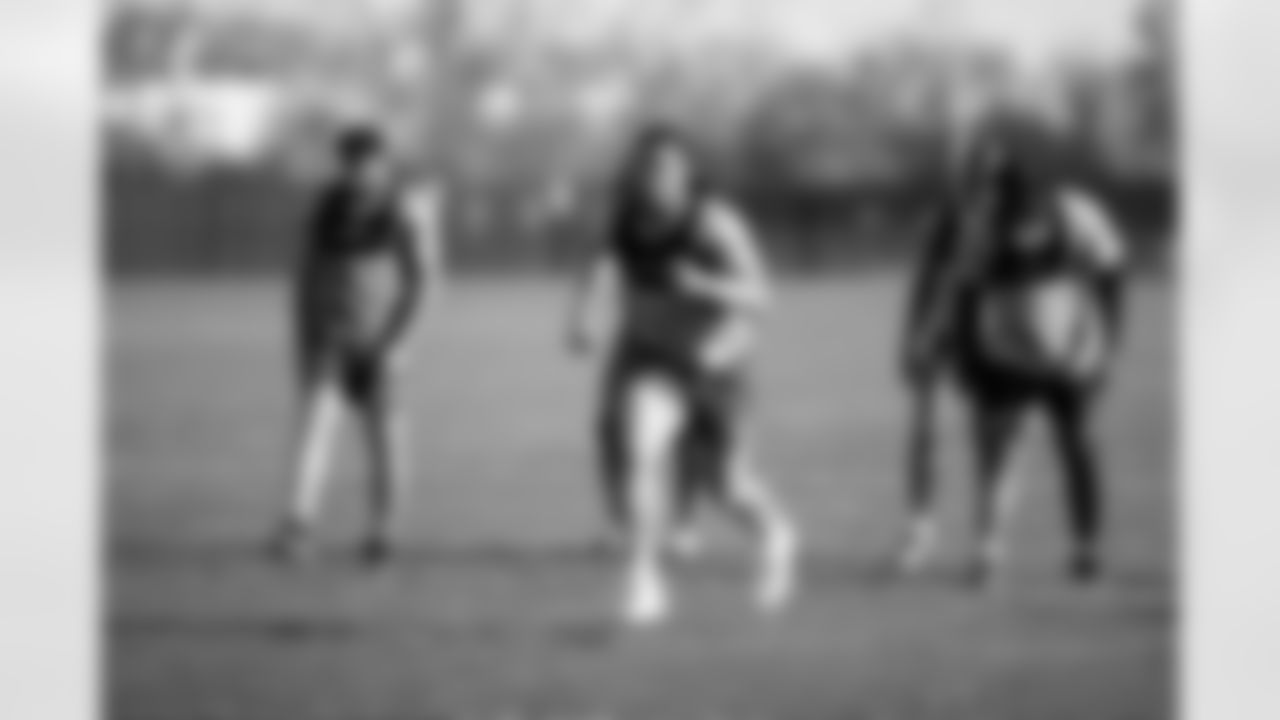
Ryder Anderson (90)

Darnay Holmes

Boogie Basham (45)

Ryder Anderson (90)

Evan Neal

Andrew Thomas

Miles Boykin

Bryce Ford-Wheaton
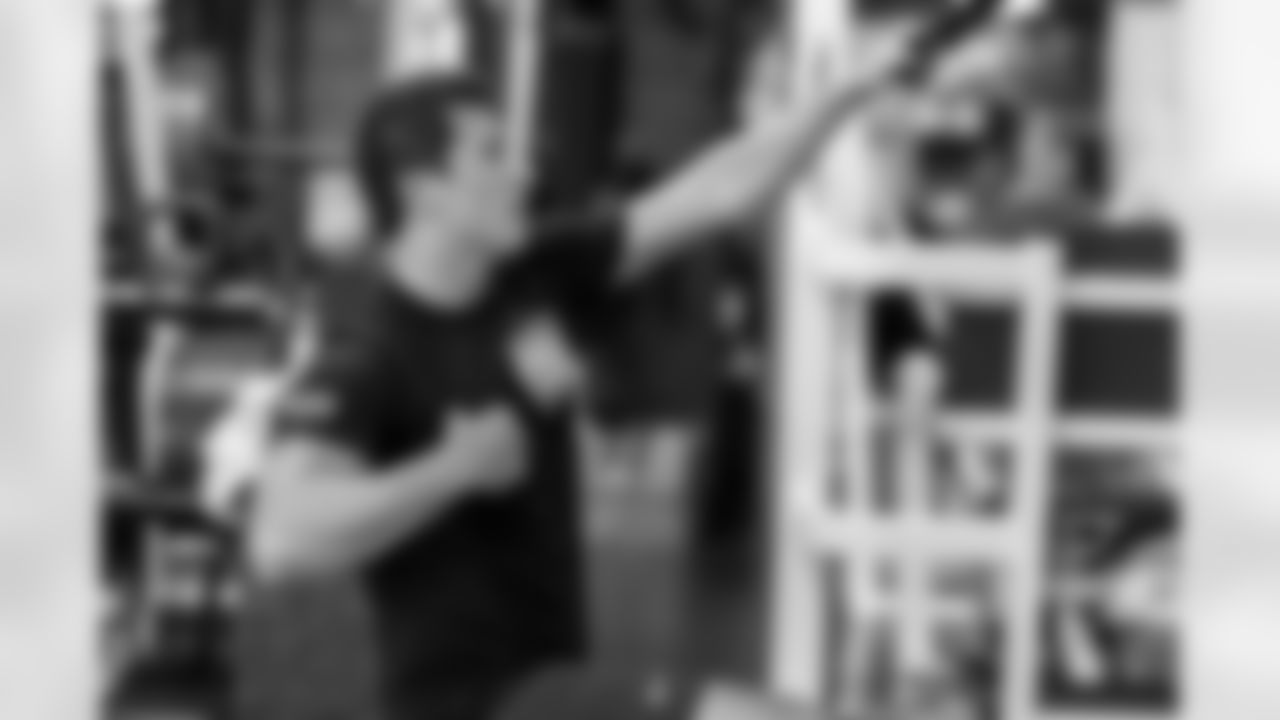
Tommy Devito

Bryce Ford-Wheaton

Eric Gray


Eric Gray

Tommy DeVito

Devin Singletary

Jack Stoll

Devin Singletary

Lawrence Cager

Tommy DeVito
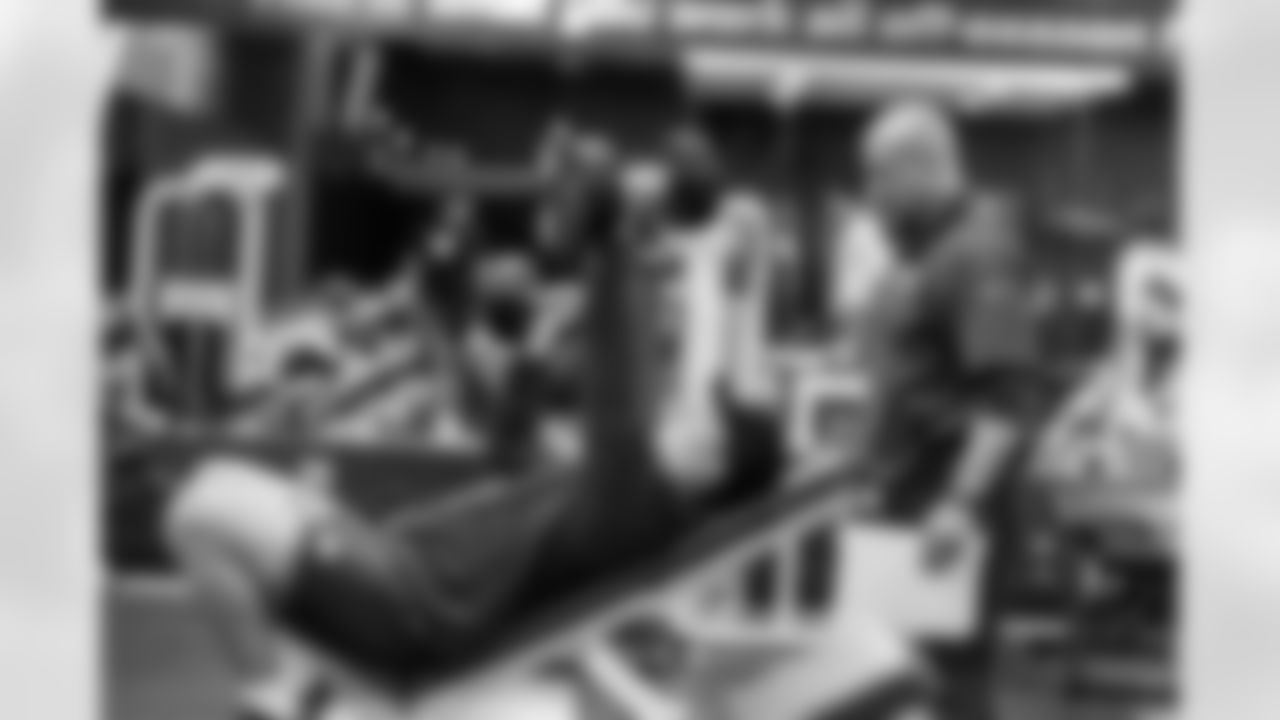
Drew Lock,

Daniel Jones

Evan Neal
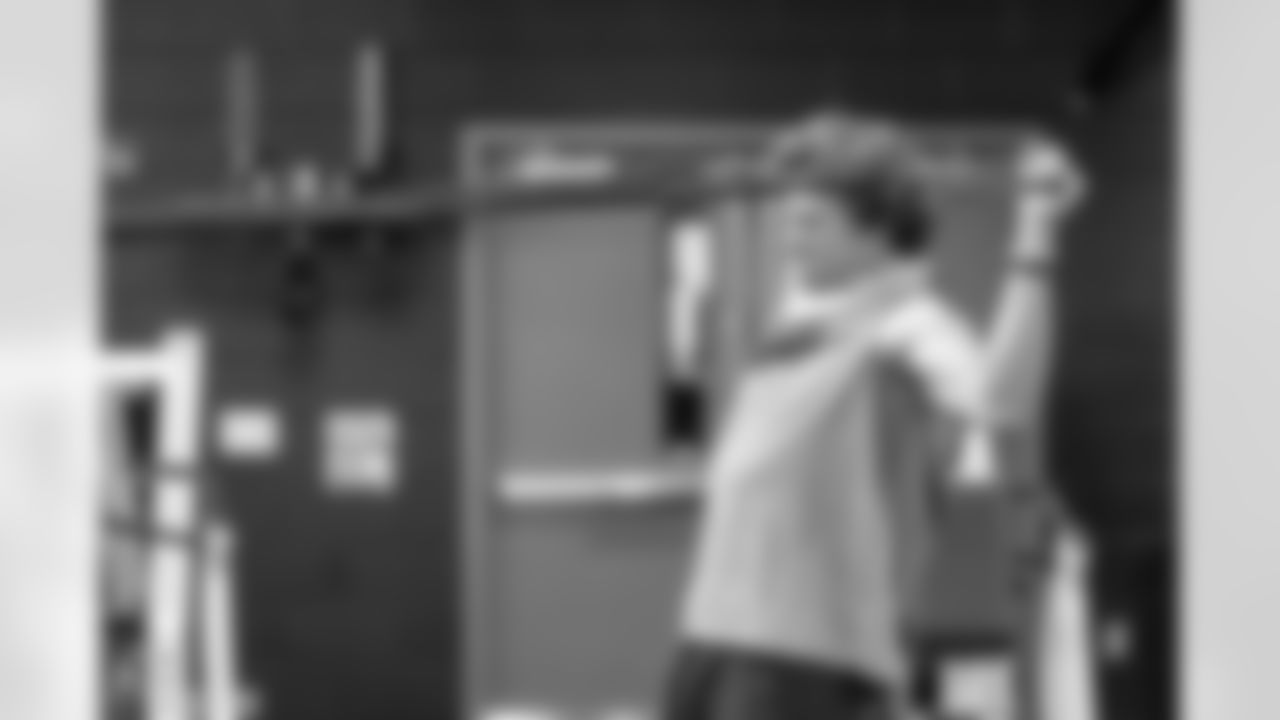
Chase Cota

Daniel Bellinger

Daniel Bellinger

Isaiah McKenzie

Isaiah McKenzie

Wan'Dale Robinson

John Michael Schmitz Jr.

John Michael Schmitz Jr.

Frank Piraino
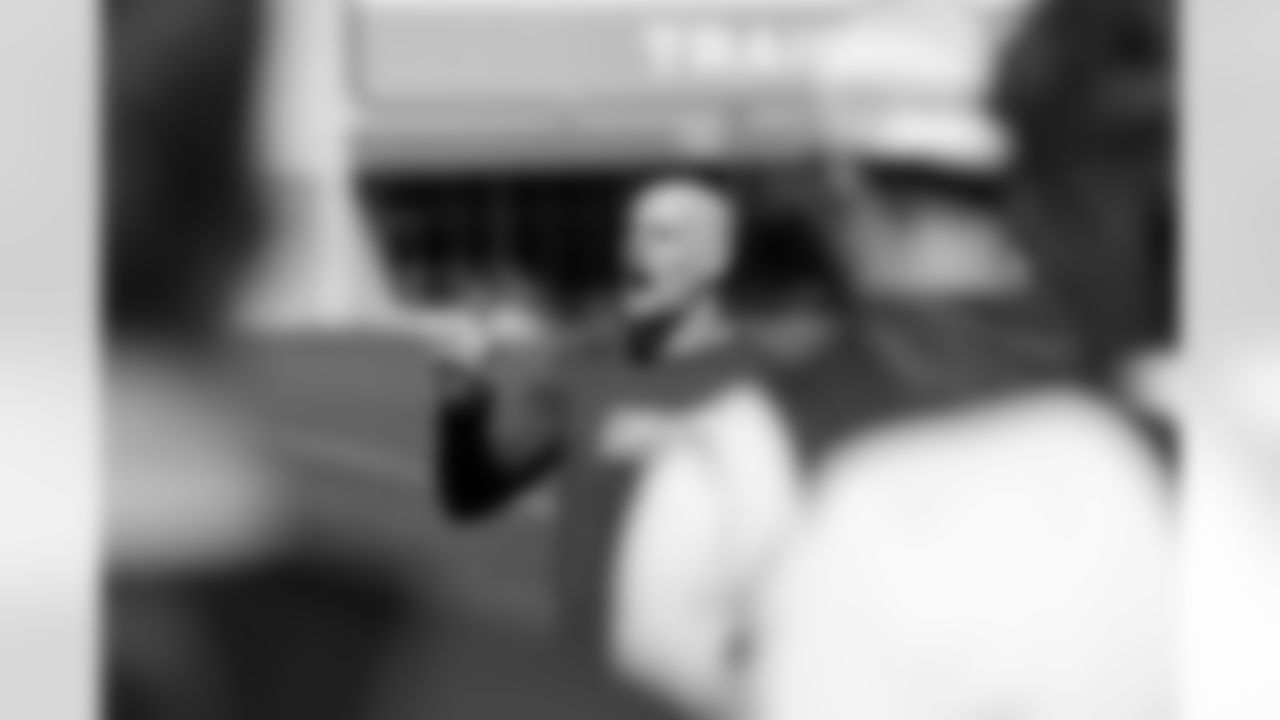
Frank Piraino


Jalin Hyatt

Tommy DeVito



Jamie Gillan

Brian Burns

Brian Burns

Brian Burns

Brian Burns

Brian Burns

Tre Hawkins III

Brian Burns
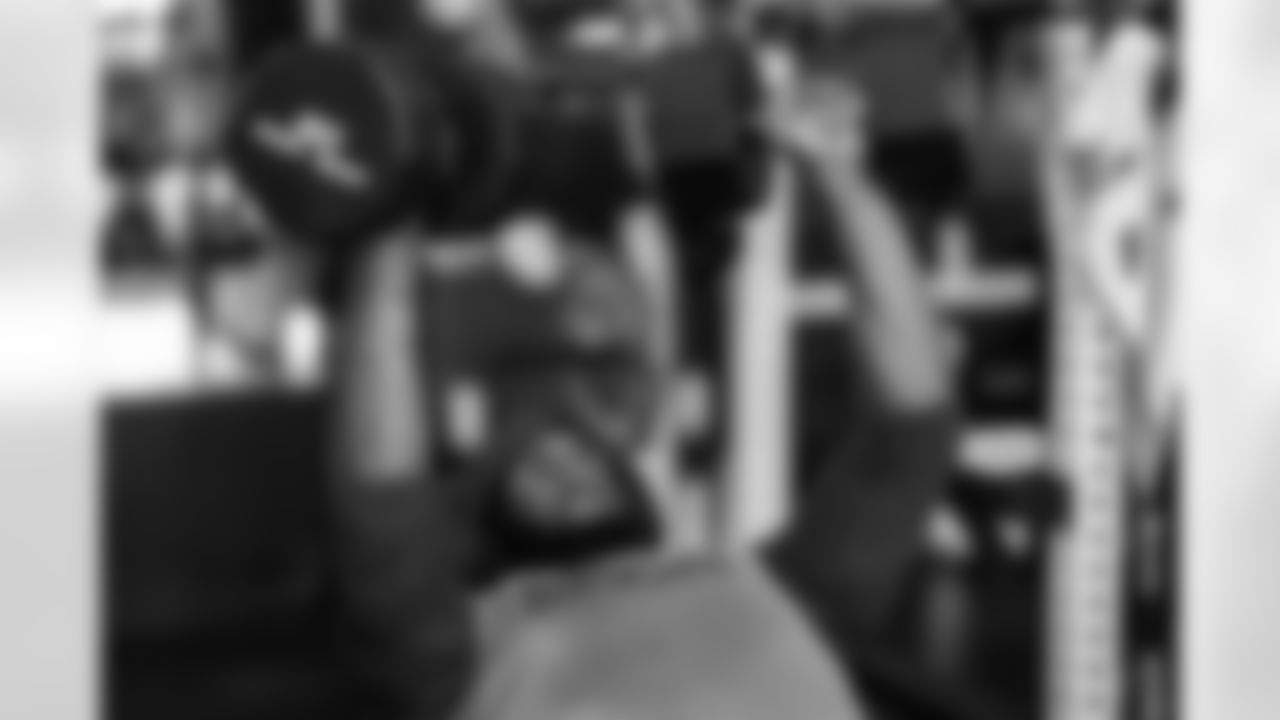
Brian Burns
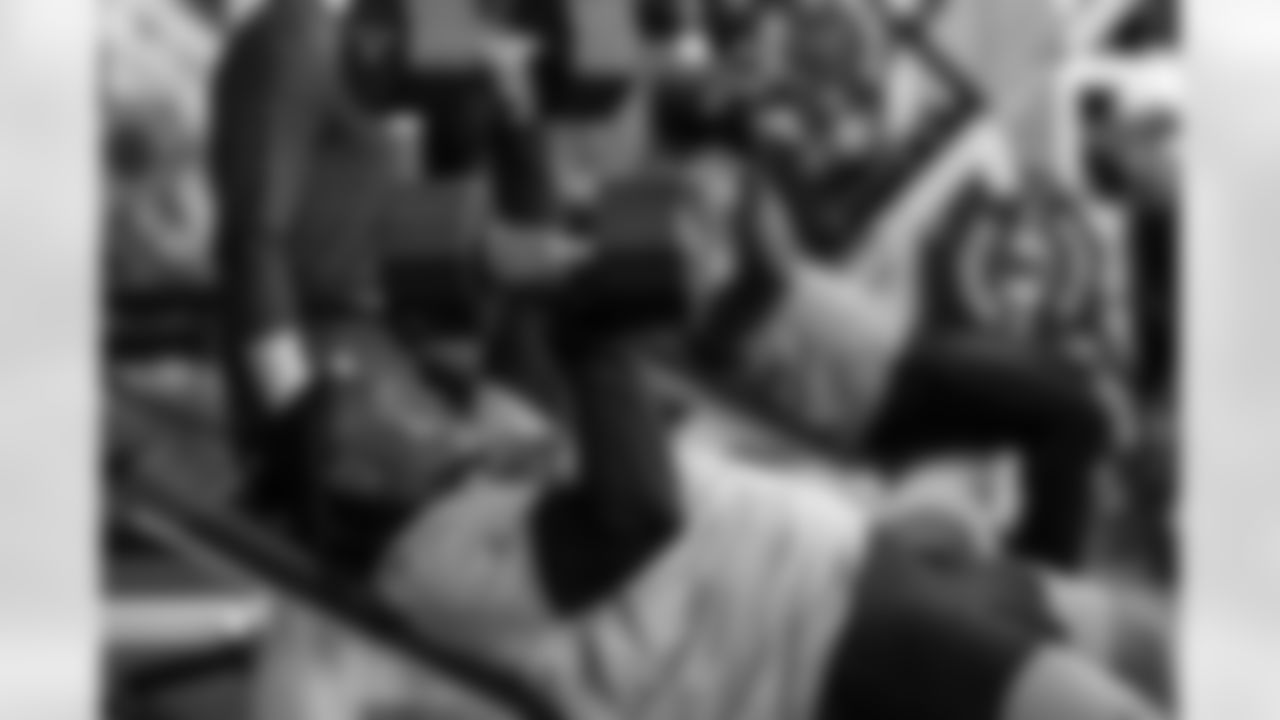
Boogie Basham

Kayvon Thibodeaux

Kayvon Thibodeaux

Jalen Mills

Casey Keiter

Jalen Mills

Andrew Thomas
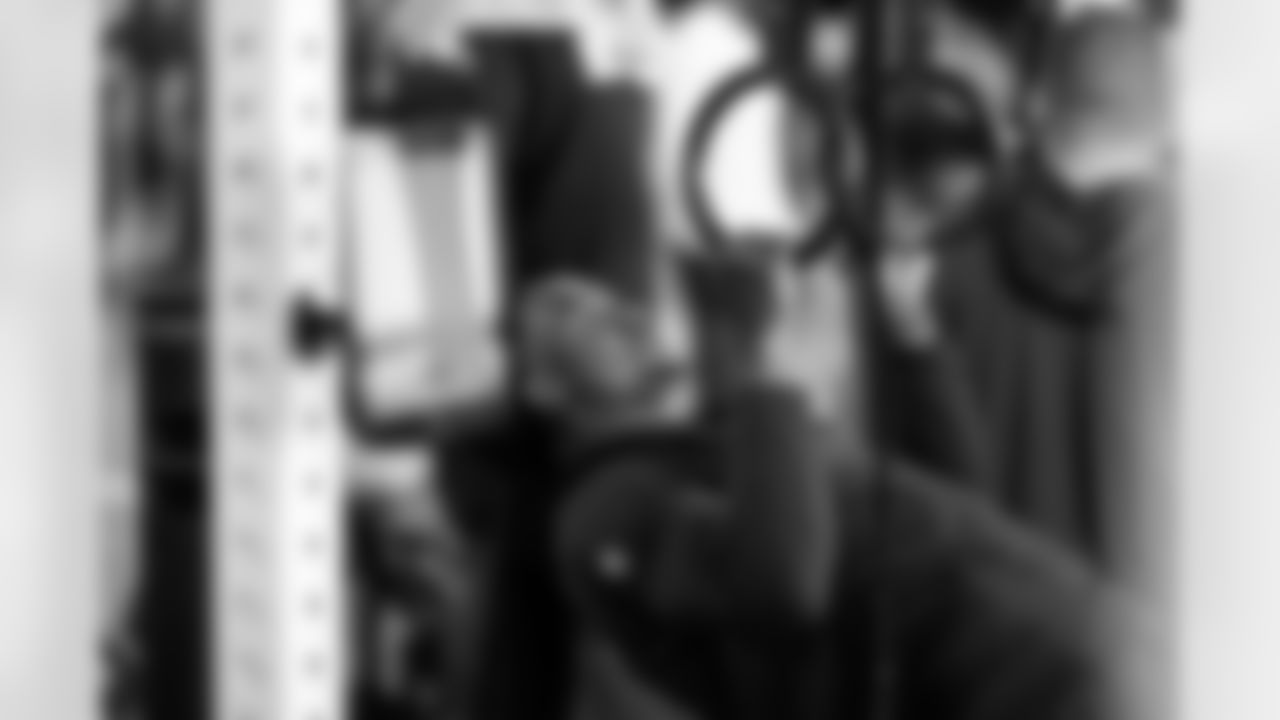

Aaron Stinnie

Jon Runyan

Andrew Thomas


Graham Gano

Graham Gano

Dexter Lawrence II

Brian Burns

Nick McCloud

Cor'Dale Flott

Bobby Okereke

Bobby Okereke
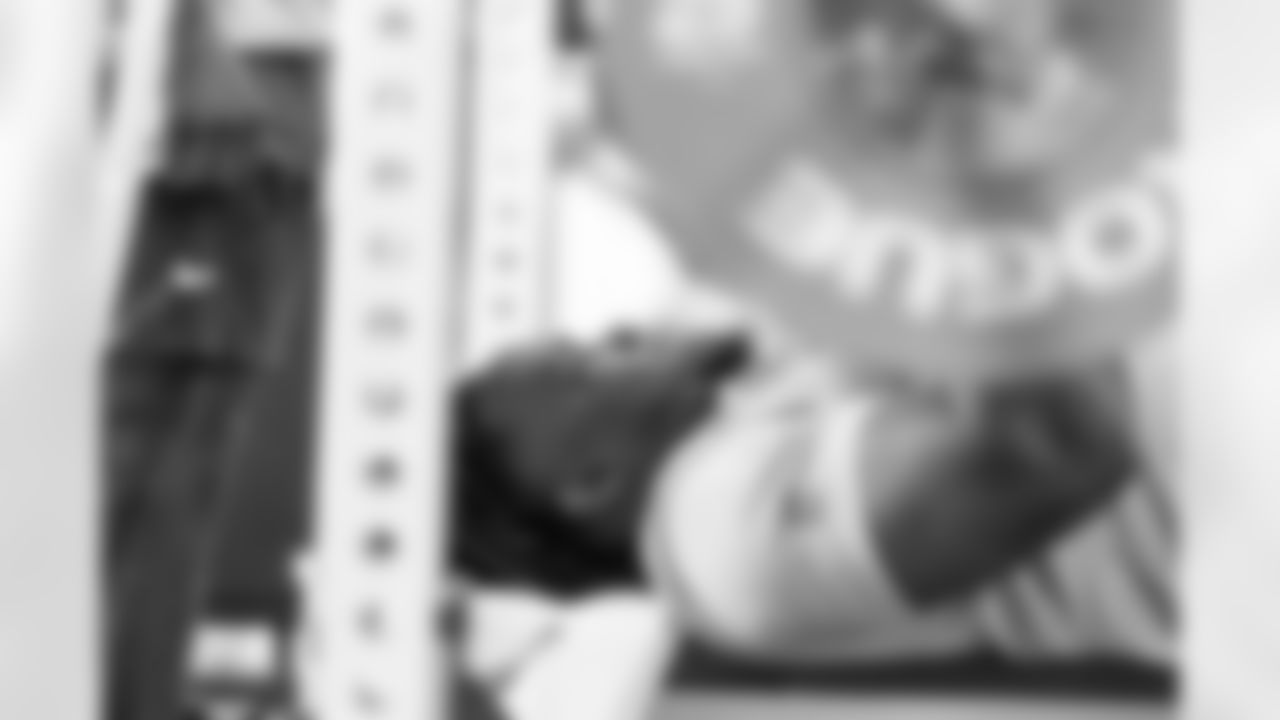


Matthew Adams

Joshua Ezeudu
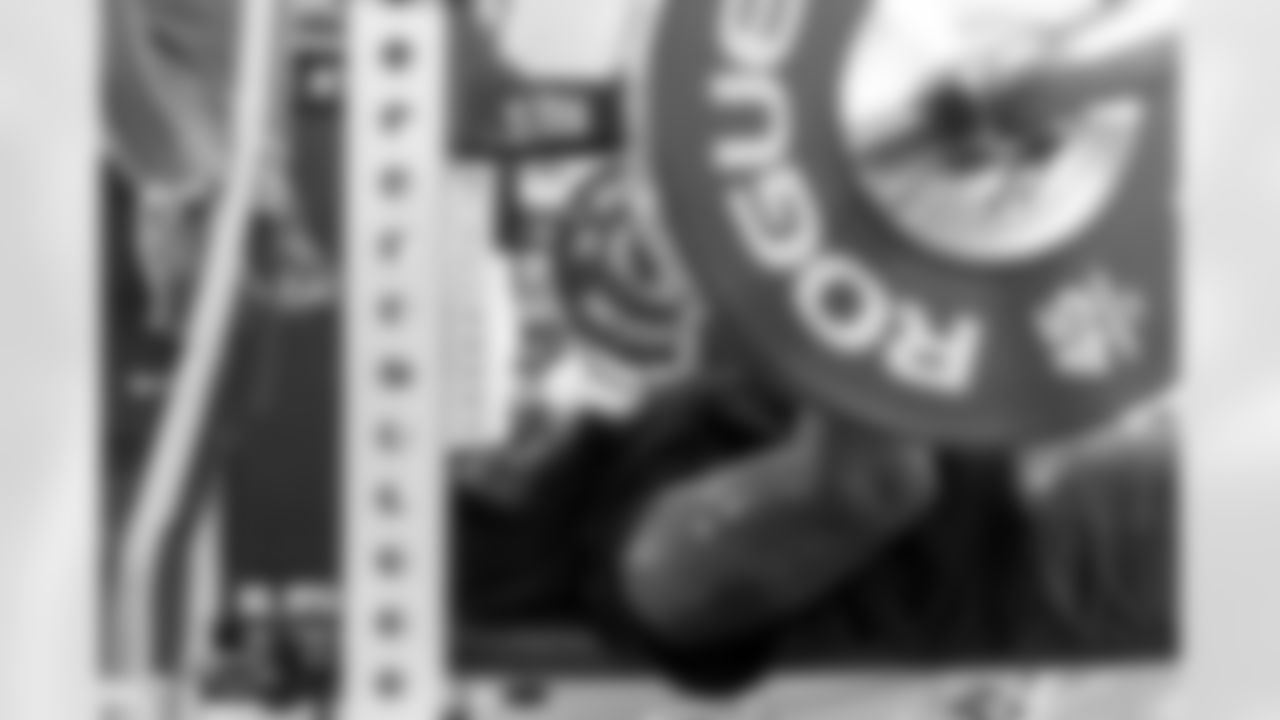
Andrew Thomas
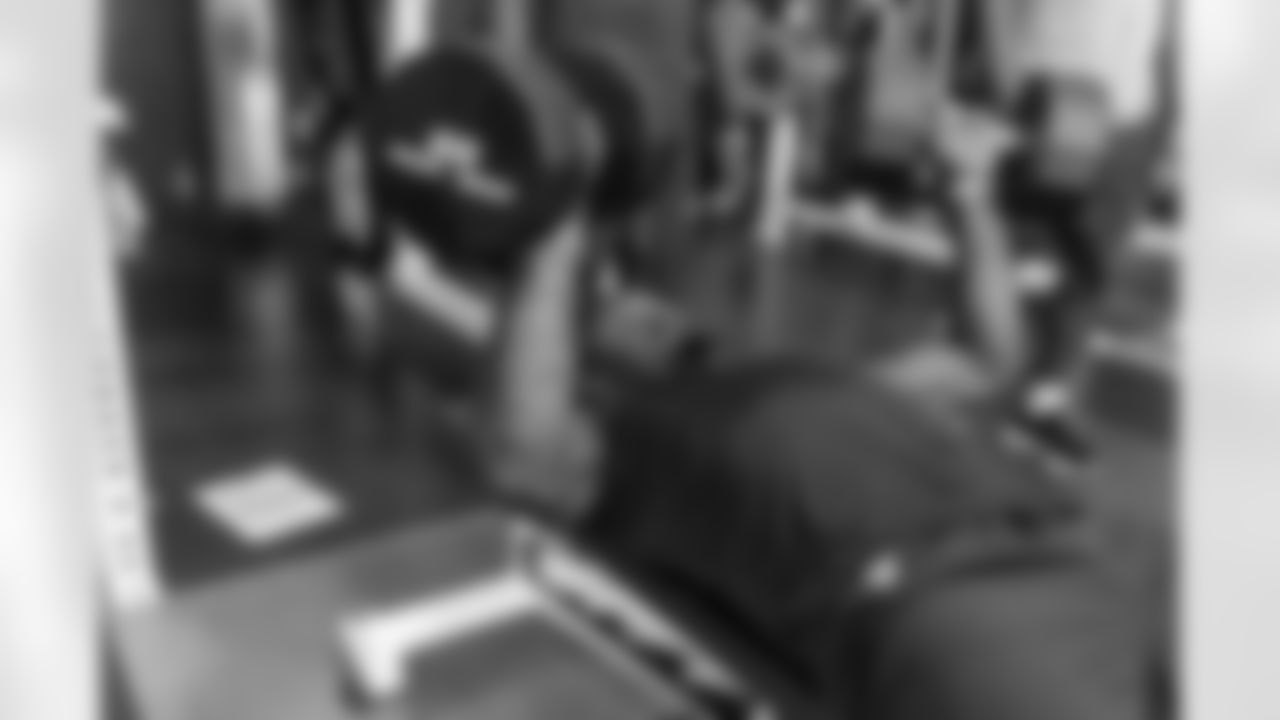
Jashaun Corbin

Isaiah Hodgins

Devin Singletary
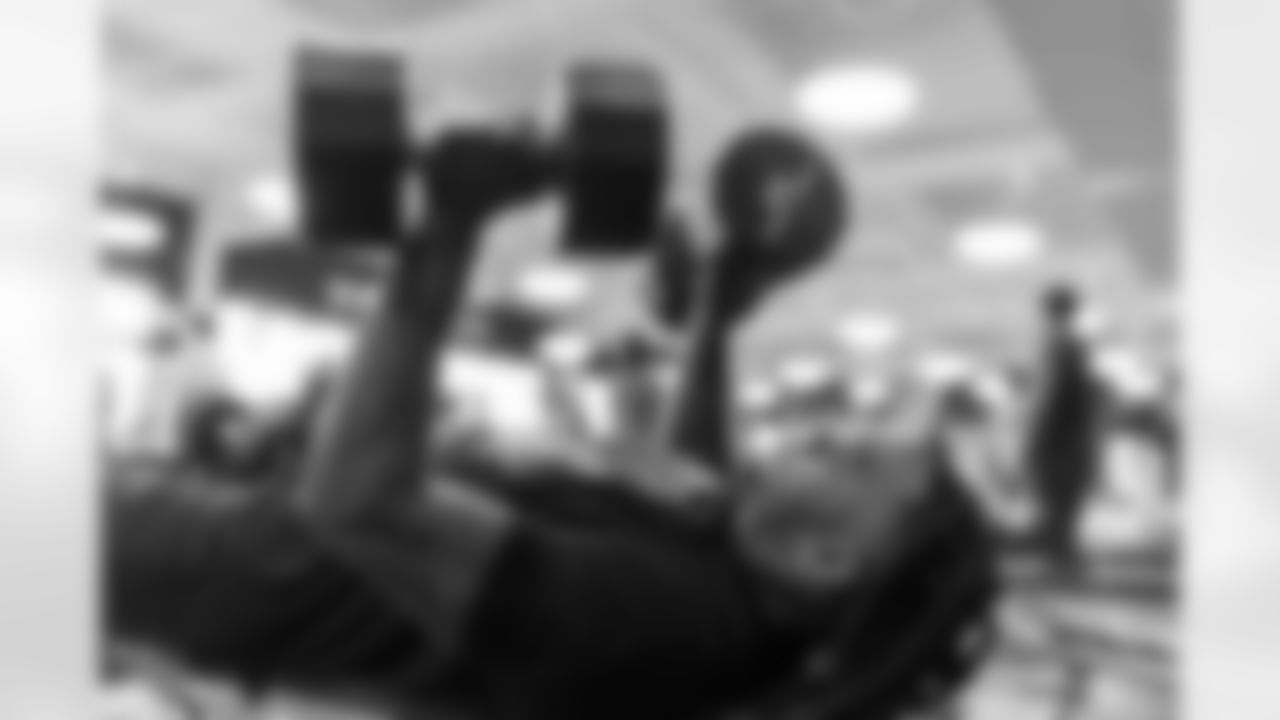
Bryce Ford-Wheaton

Eric Gray

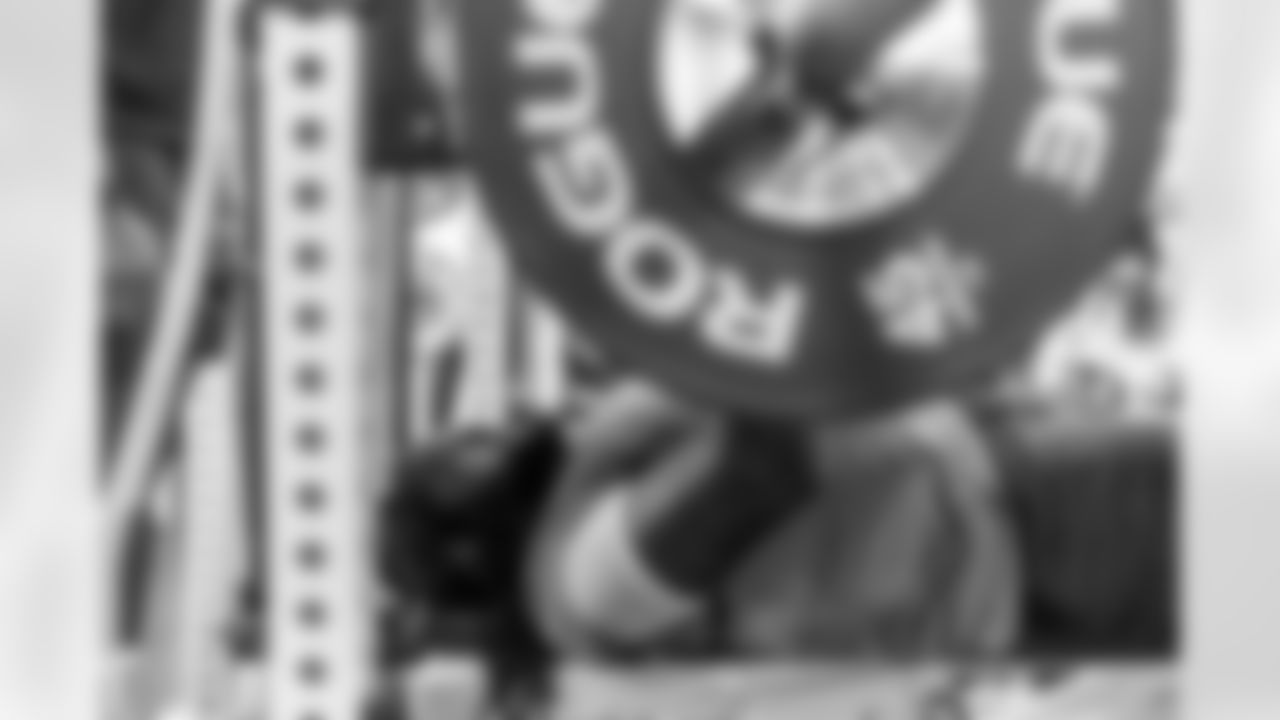
Joshua Ezeudu
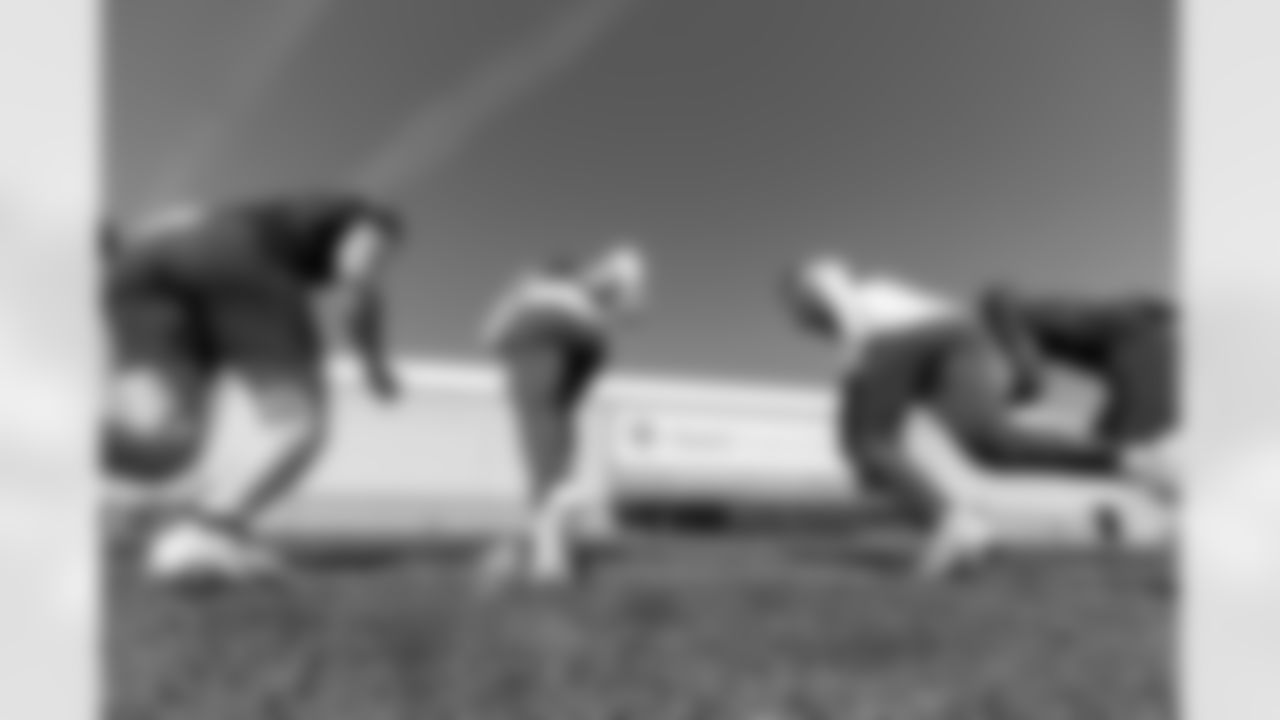
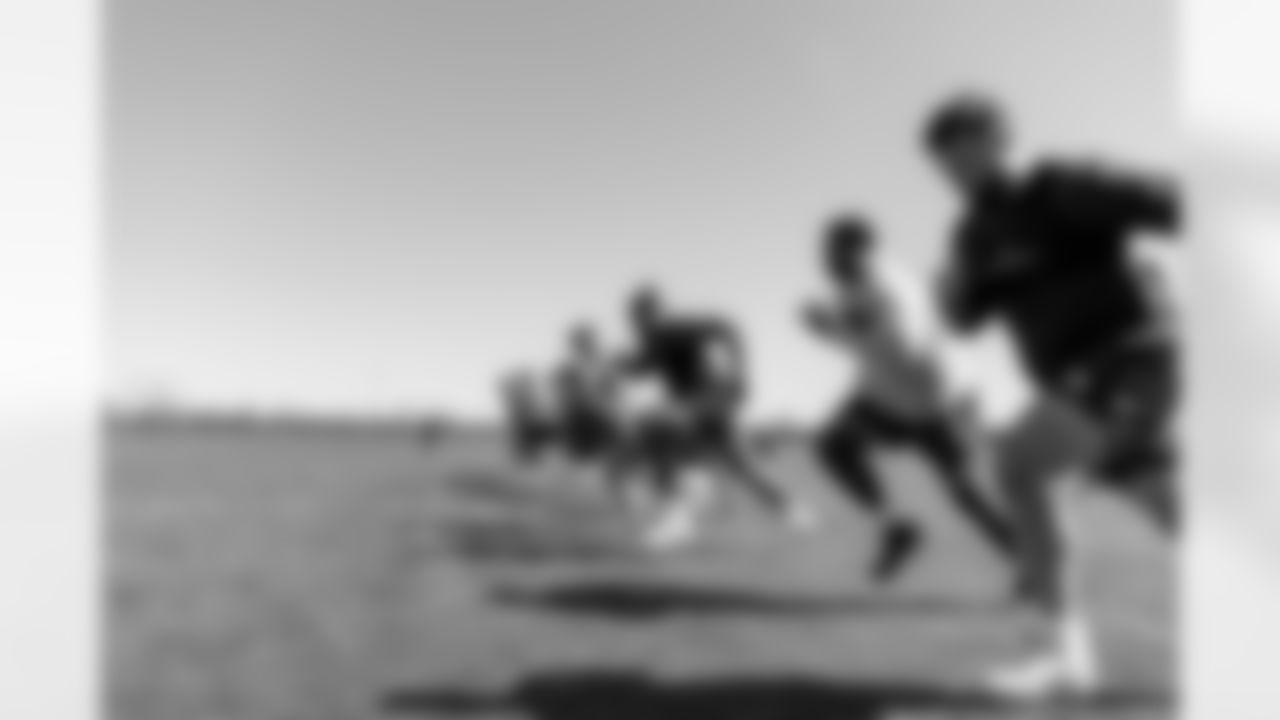

Jason Pinnock

Timmy Horne


Jason Pinnock
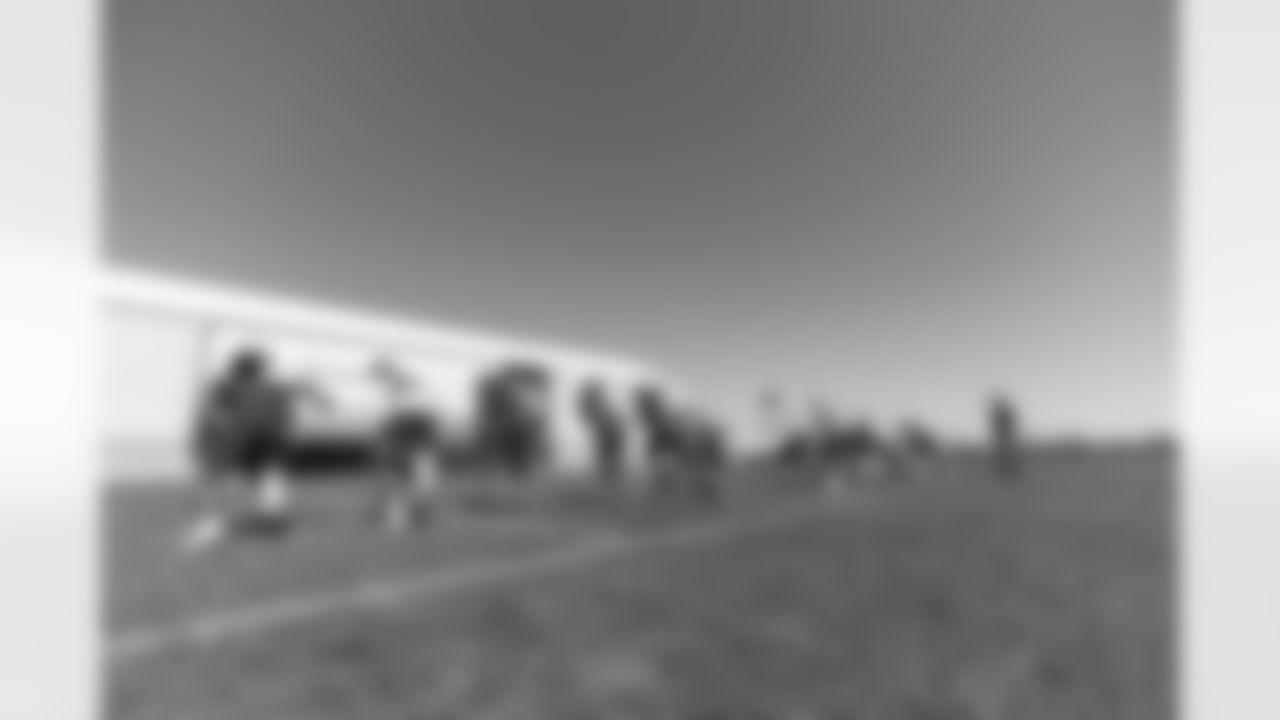

Brian Burns

Brian Burns

Kaleb Hayes

Ryder Anderson

Isaiah Simmons

Kayvon Thibodeaux

Timmy Horne

Kayvon Thibodeaux



Ryder Anderson (90)

Ryder Anderson

Gervarrius Owens
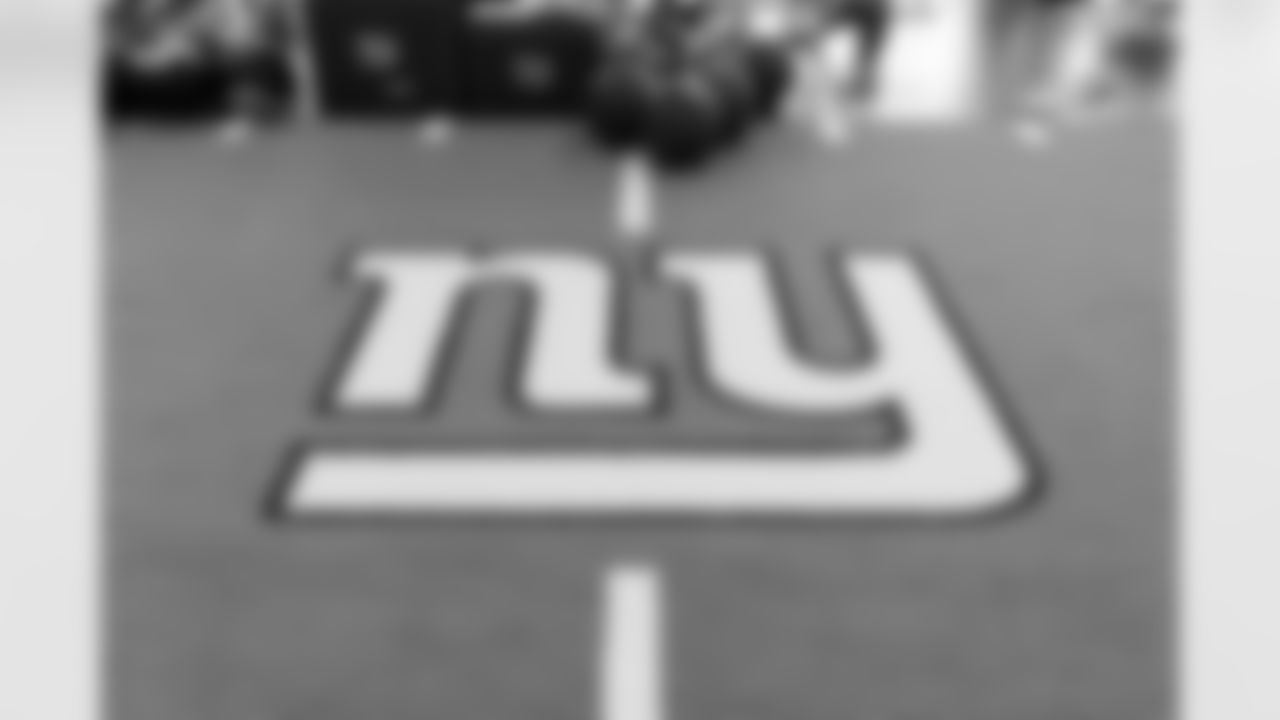
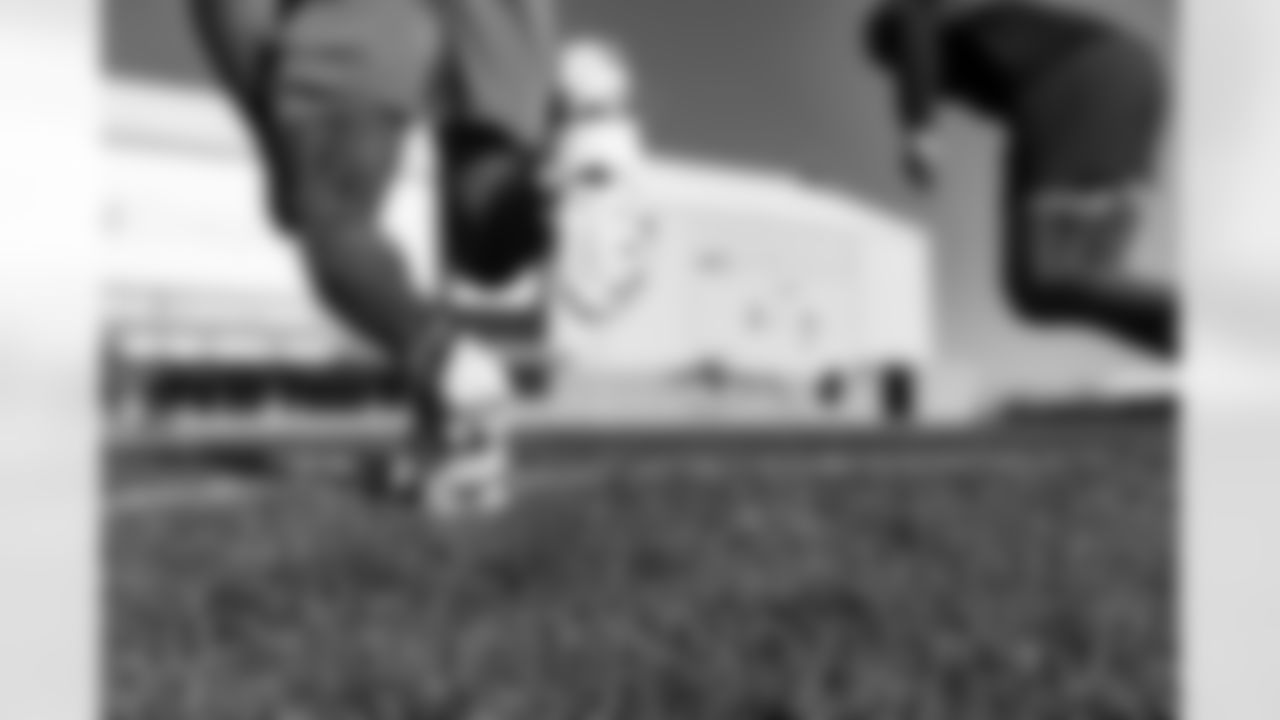

Kayvon Thibodeaux

Ryder Anderson
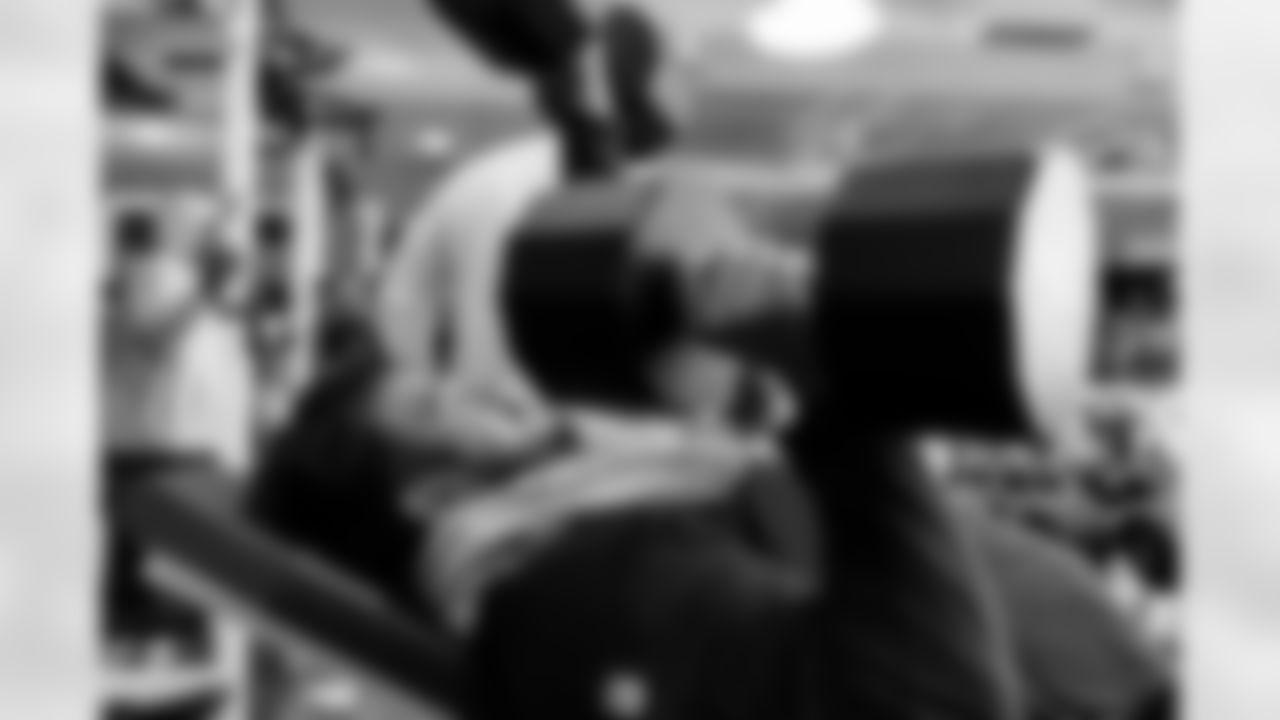
Jon Runyan

Aaron Robinson

Benton Whitley
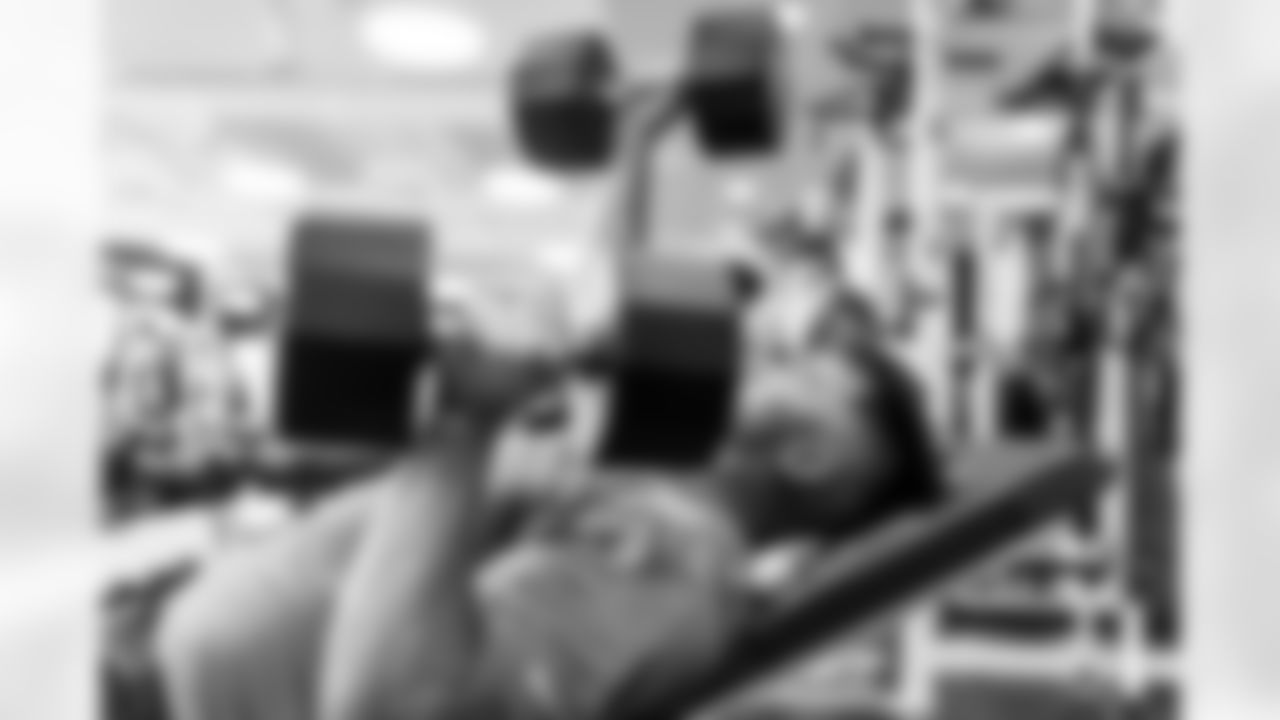
Micah McFadden

Brian Burns

Andrew Thomas


Andrew Thomas

Joshua Ezeudu

Nick McCloud

Aaron Stinnie

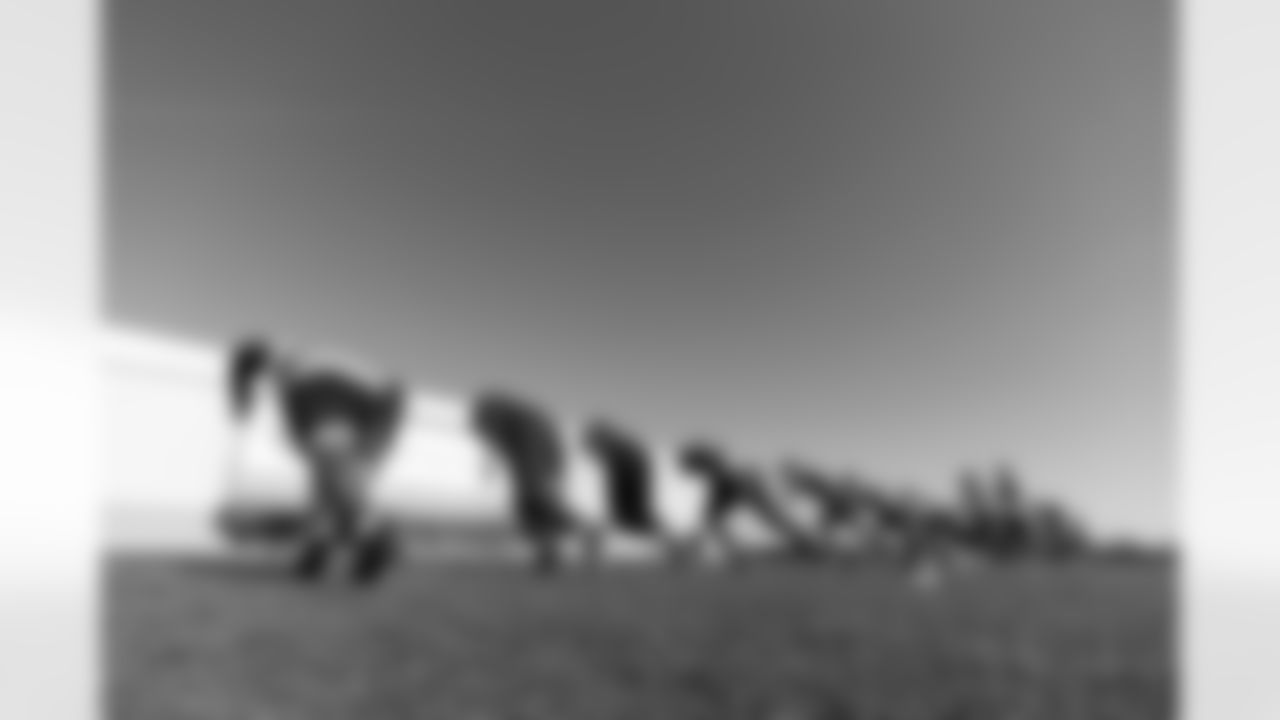

Aaron Stinnie

Aaron Stinnie

Aaron Stinnie

Isaiah Simmons (19)

Micah McFadden (41)

Deonte Banks (3)

Evan Neal

Dexter Lawrence II

Darnay Holmes (30), Azeez Ojulari (51)

Jermaine Eluemunor (72)

Wan'Dale Robinson (17)

Dexter Lawrence II

Jalin Hyatt (13)

Kayvon Thibodeaux (5)

Jason Pinnock (27)

Dane Belton (24)

Andrew Thomas (78)

Nick McCloud (44)

Rakeem Nunez-Roches (93)

Brian Burns (0)
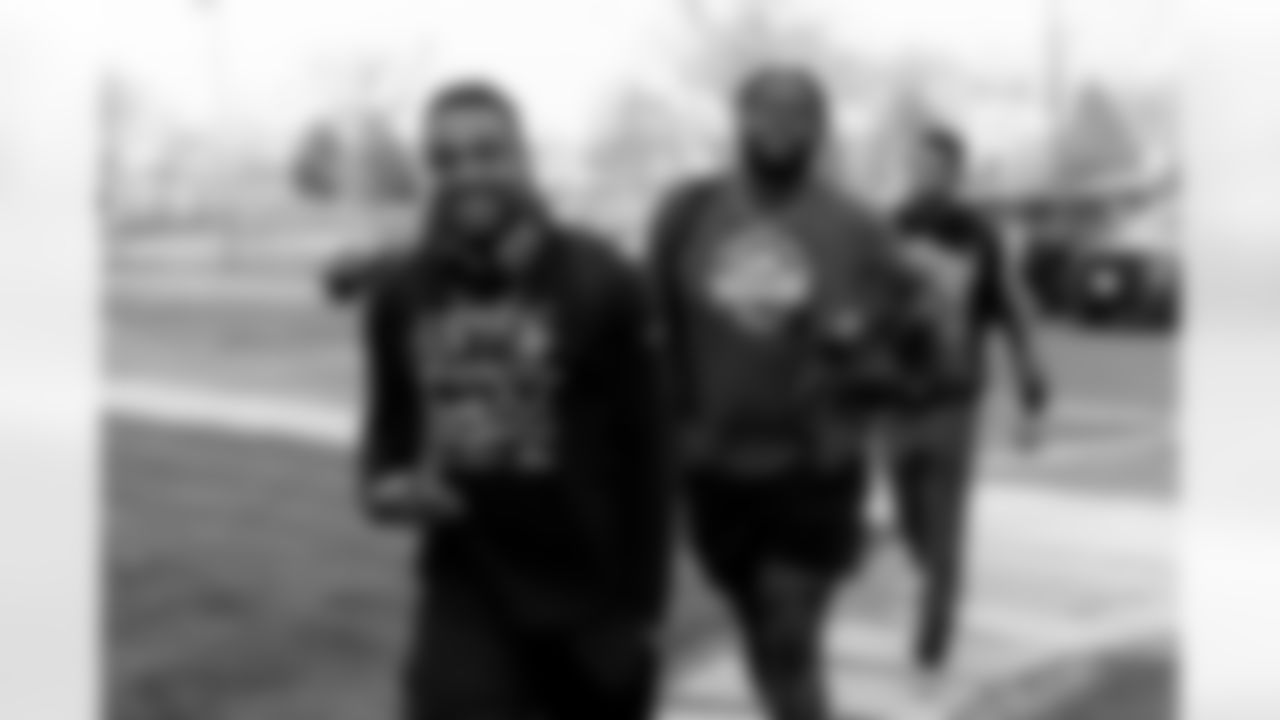
Kaleb Hayes (38)

Isaiah Hodgins (18)

Devin Singletary (26)

Brian Burns (0)

Cor'Dale Flott (28)

Jalen Mayfield (62)
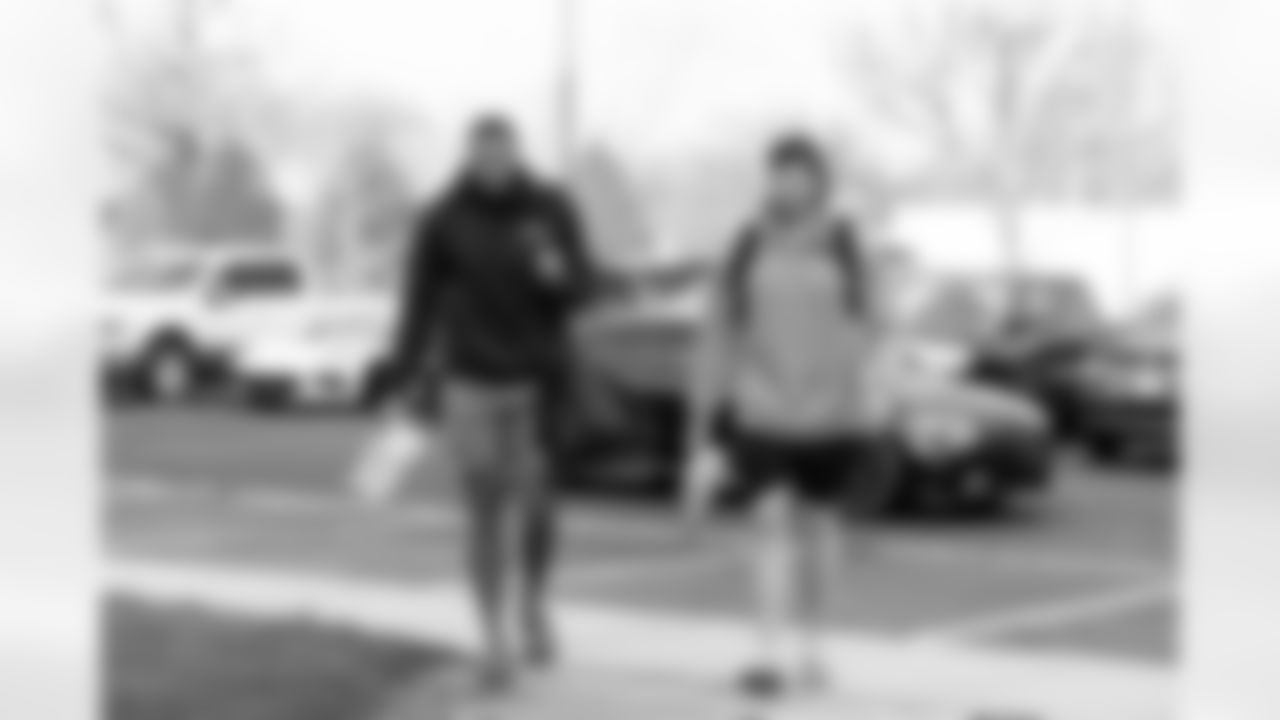
Tyree Jackson (84), Jack Stoll (89)

Tommy Devito
*New defensive coordinator Shane Bowen also has a rule change he must teach his players, the elimination of the hip-drop tackle. That also resulted in enough injuries for the owners to make it illegal.
"We are in the process of studying it now," said Bowen, who spent the previous three seasons as the Tennessee Titans' coordinator. "I think just bringing awareness to it. Understand that the biggest thing for me is the situations guys find themselves in when (the hip-drop) occurs. If we have a good understanding of that, I think that will lead to hopefully us being able to avoid it. I don't know if it's going to be a hundred percent avoidable at times. I hope it is. But at times, you're going to be caught in some situations, and those guys, they are going to do whatever they can to get the guy down on the ground. It might happen.
"But right now, we are studying them. We are trying to make cutups of them where we can show the guys just so they have a good understanding of in this situation when you're in this body position with the ball carrier, these are when these things are showing up, and then we have got to be able to teach from that to where we can eliminate getting ourselves in those situations."
Bowen on what everyone can expect from the Giants' defense:
"I hope they see us flying around, playing with speed, playing with great effort," he said. "I think a physicality to our game, playing with violence. Attacking the line of scrimmage. Guys being fundamentally sound. Not beating ourselves. Making sure we are lined up, we are communicating, doing everything pre-snap that we need to do to put ourselves in position to make plays.
"Ultimately if guys fly around and we play physical, I feel like that makes up for a lot of stuff."
Bowen noted that he succeeded Dean Pees as the coordinator in Tennessee, just as his predecessor, Wink Martindale, had followed Pees in Baltimore. That led to questions about how Bowen's philosophy compares to the blitz-intensive Martindale's.
"I'm going to do whatever we've got to do to affect the quarterback and make sure the ball doesn't get thrown over our head," Bowen said. "Whatever that is, however many guys we've got to send. However, I guess, less guys you can send and still get the same result, I think all that comes into play.
"And it takes all 11. It does. If you're bringing more to affect the quarterback, you've got less back there to help. If you have more back there to help in coverage, you've got less going to affect the quarterback.
"I think it depends a little bit on personnel, how you're able to affect with less, how you're able to affect with more versus how you're able to hold up in the back end. It's going to be fluid. We've done it all, we really have. The percentages might not show up, but you go back and find the ones that we did, it's probably going to look a lot similar to what it was here, a little bit more on a higher percentage than what we did in Tennessee."
*Offensive coordinator Mike Kafka, the Giants' only holdover coordinator, received the additional title of assistant head coach this offseason. "It's certainly an honor to have that title," Kafka said. "I don't take it lightly."
With the NFL Draft beginning a week from tomorrow, Kafka, like many in the organization, has spent much time studying what is considered a strong group of quarterbacks. Kafka played quarterback at Northwestern and with the Philadelphia Eagles and was asked what he looks for in those who are entering the league.
"There are a lot of things that are important to me in a quarterback,' Kafka said. "Leadership, just that ability to kind of control a room, control a huddle. That kind of 'it' factor. You look for that. The more you talk to them, the more you get comfortable with them.
"The first time you meet somebody, maybe one of the other parties may not be as comfortable, so you try to have these exposures with guys so you can really understand how they tick. You want to understand what fires them up and what things maybe give them issues, so you have a plan as a coach to build a guy up and how you can kind of prevent maybe some weak spots. If they have a weakness and I have a strength, I can cover up his weakness with my strength and vice versa.
"You try to find that 'it' factor with a guy you know is going to make the other guys better around him. Whether it's the quarterback room or another position, some guys just have that. I know we have that already in our quarterback room with Daniel (Jones), with Drew (Lock), with Tommy (DeVito). Those are guys that command and do a hell of a job in the huddle and command the leadership of the team. Those are guys you want to be around."
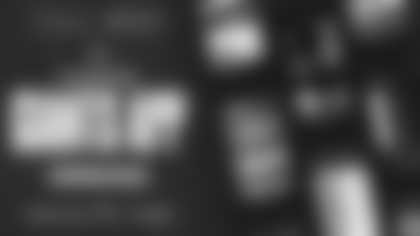
Giants App
Download the Giants' official app for iPhone, iPad and Android devices




